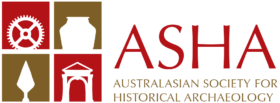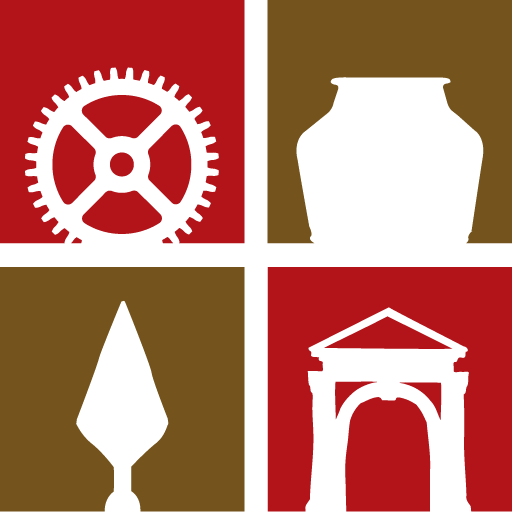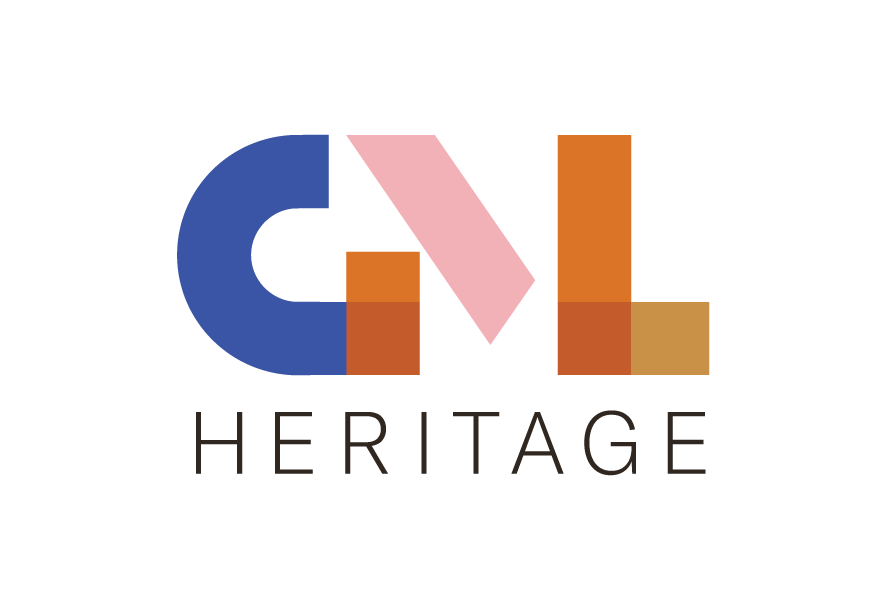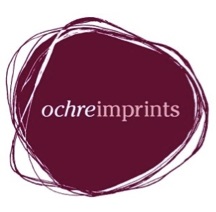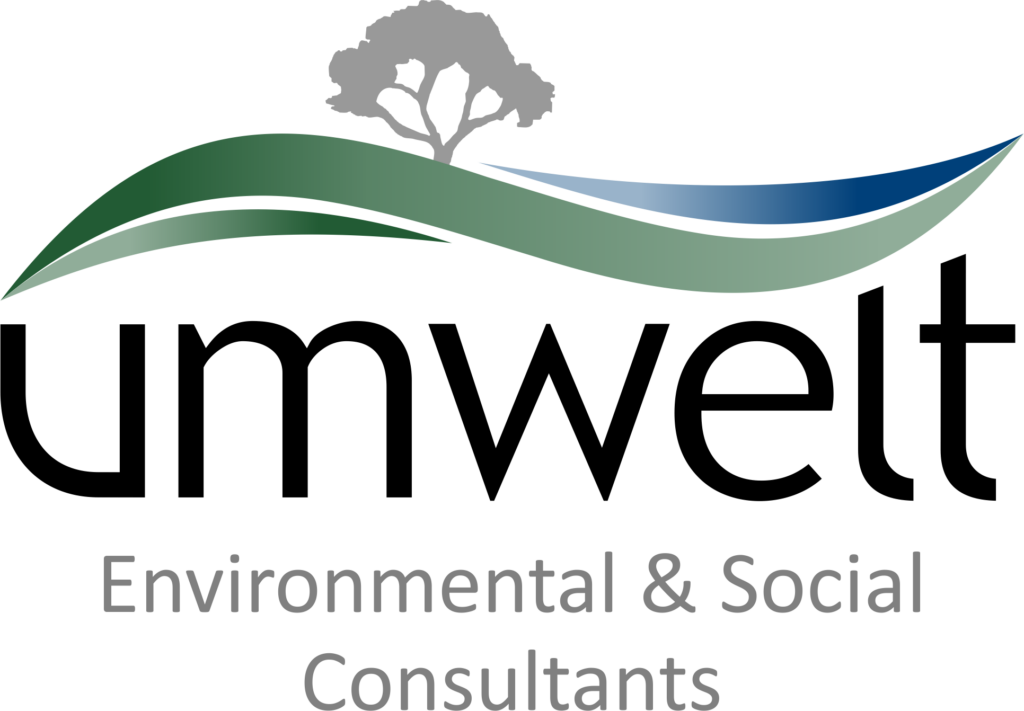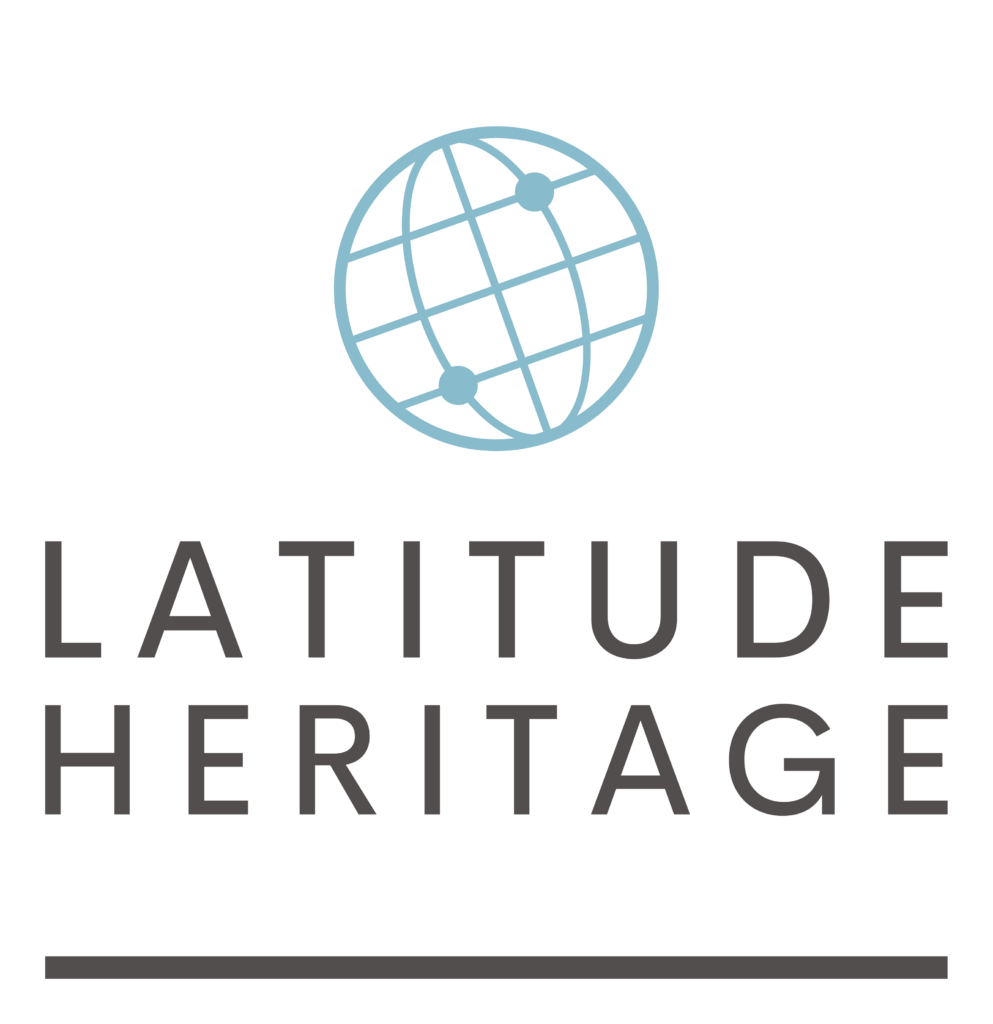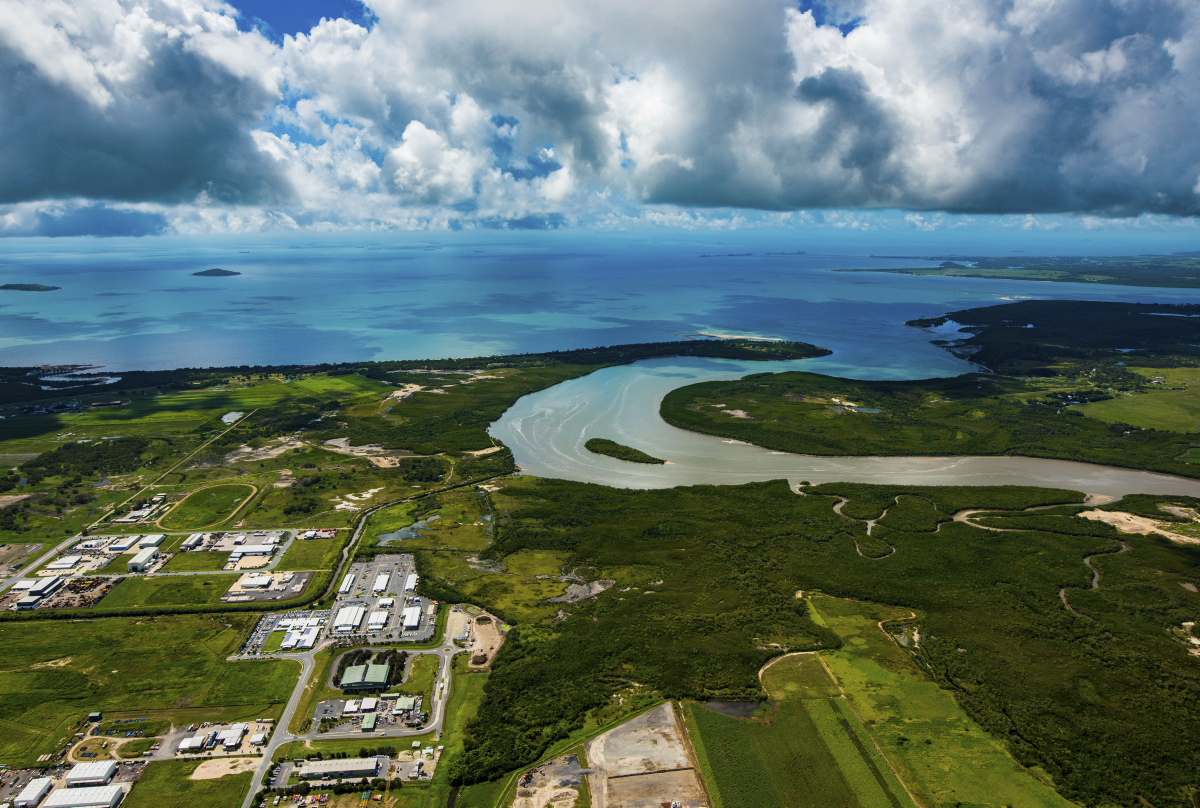
2023 Conference – 19 to 23 September
The past in the present for historical archaeology
Mackay Entertainment & Convention Centre, Mackay, Queensland, Australia
(Bakers Creek, south of Mackay, ©Queensland Museum, Gary Cranitch, CC BY-NC-ND)
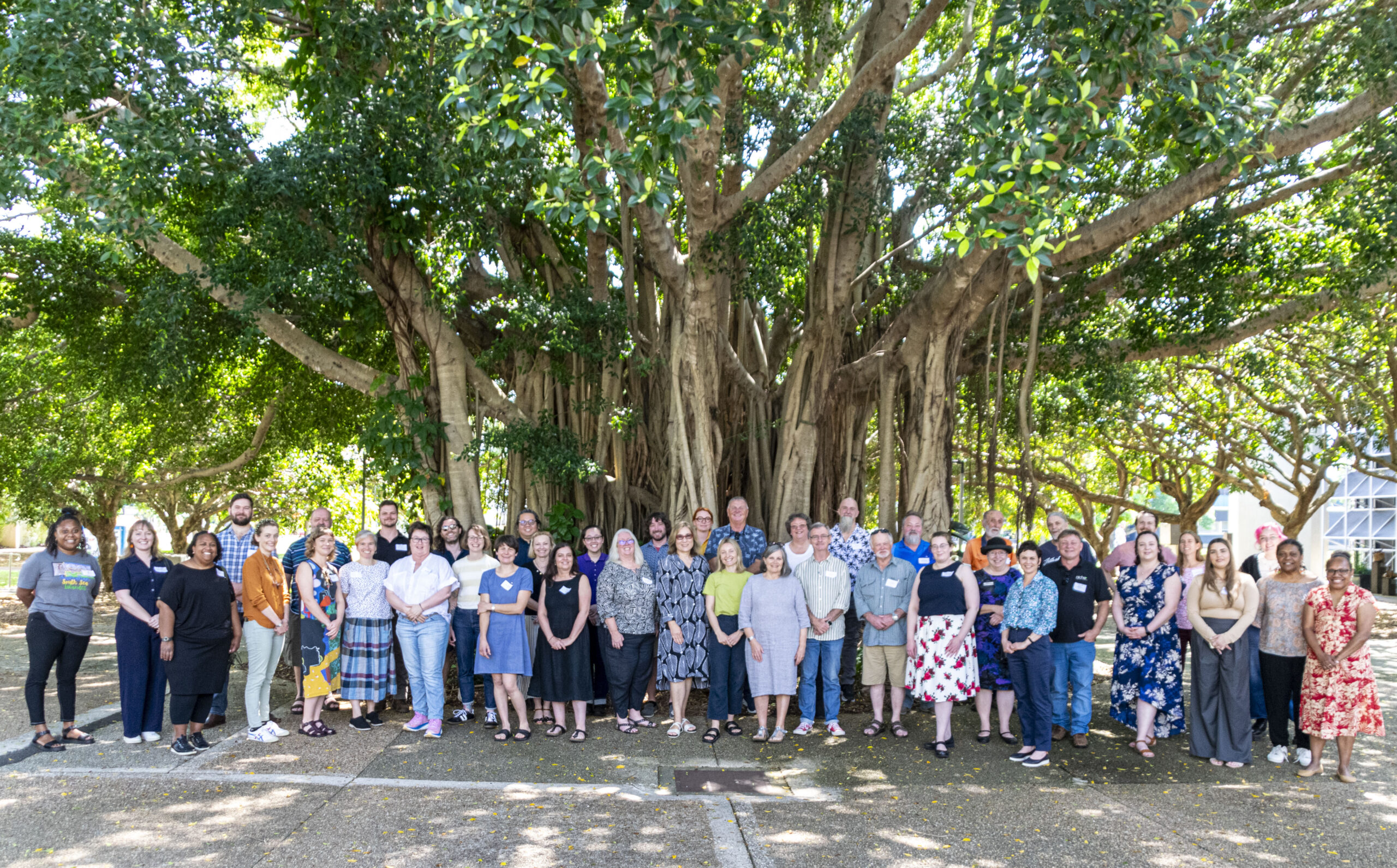
Many thanks to everyone who attended the 2023 conference at Mackay! A special thanks to Uncle Phil Kemp from the Yuwibara clan for his welcome to country, and Mayor Greg Williamson of Mackay Regional Council for his opening remarks.
Congratulations to the following winners:
- Best paper – Cassie J Gordon, Being-in-the-Roadside – Roadside Memorials as Artefacts of Contemporary Personal Heritage
- Best student paper – Ramona Lola Angelico and Angela Goh-Smith, ‘A Chinese Den’: The archaeology of intimate exchange in Jones Lane.
- Best poster – Hilda Maclean, No further “Visitations from God”: Classifying Queensland colonial deaths with the Nosological Index
- Best photograph – Tracey Martens, ‘Plain weave silk fabric excavated from a Victorian era cesspit in Melbourne CBD’
- Bursary recipients – Yongjun Qiu and Ramona Lola Angelico
Please read more about the conference in the archived material below.
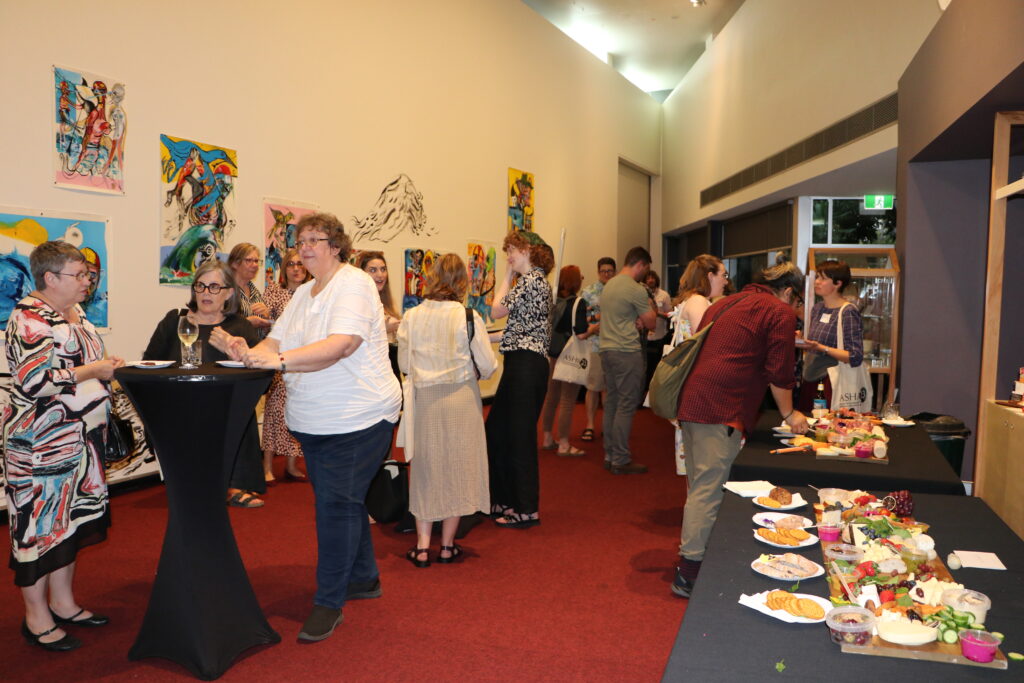
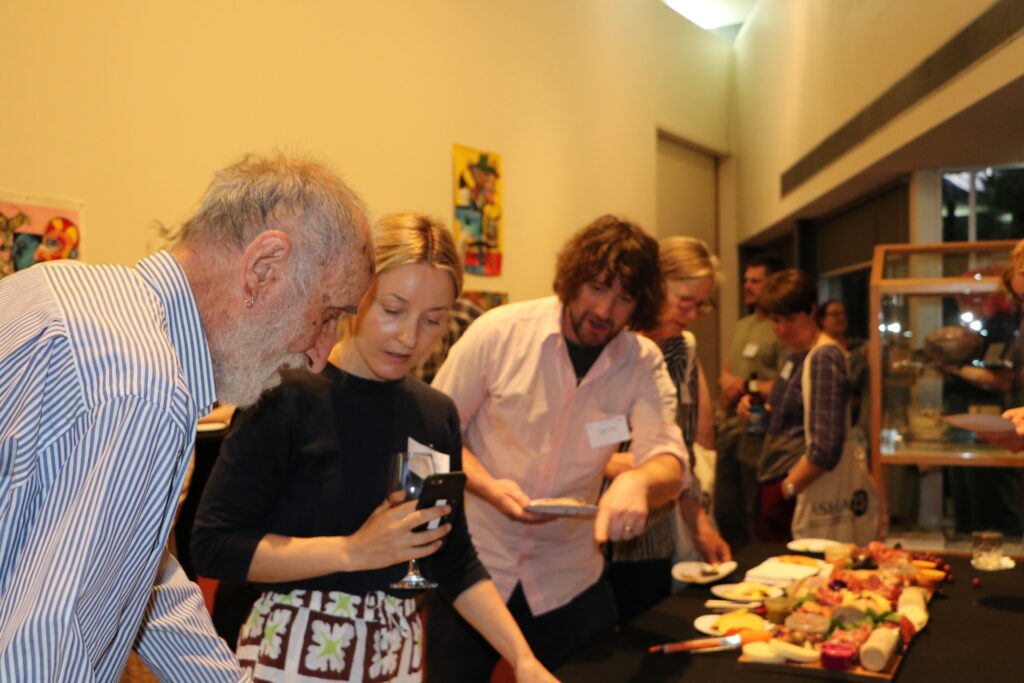
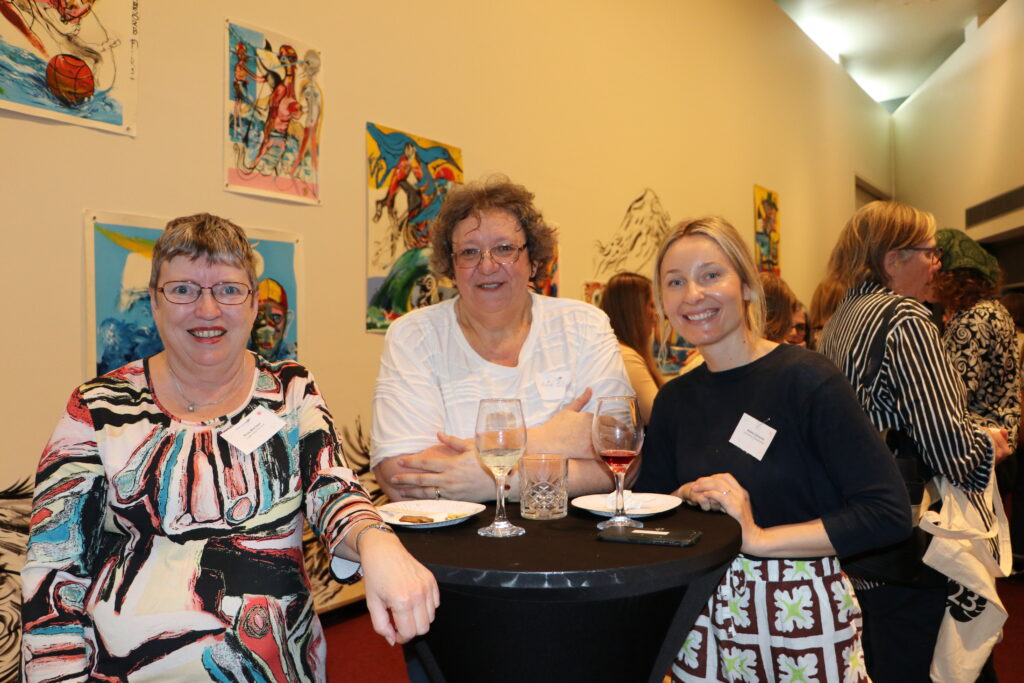
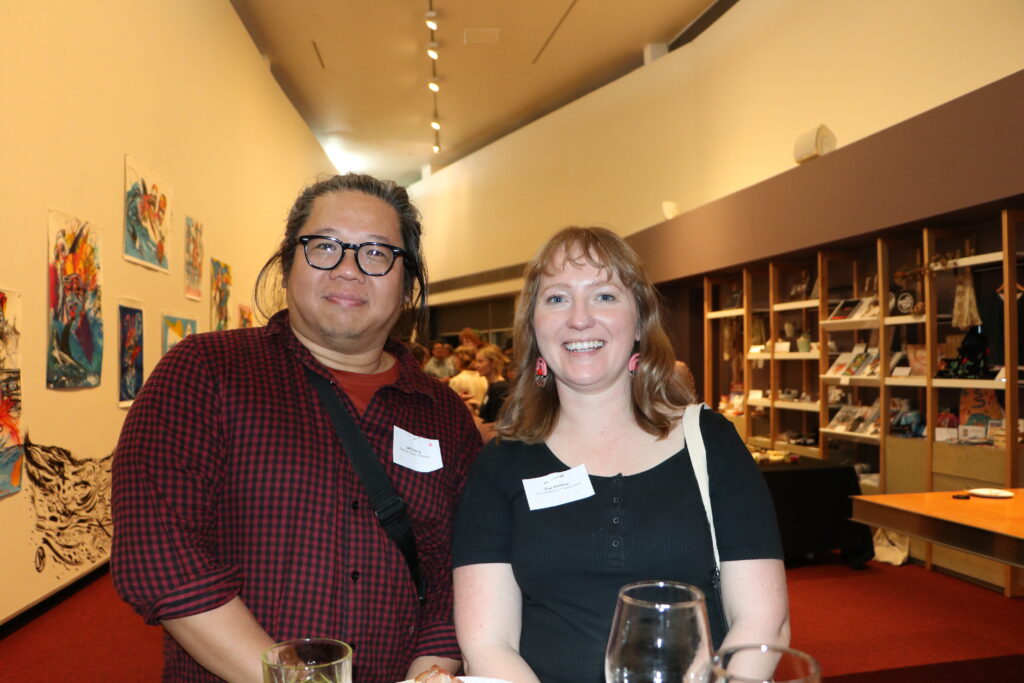
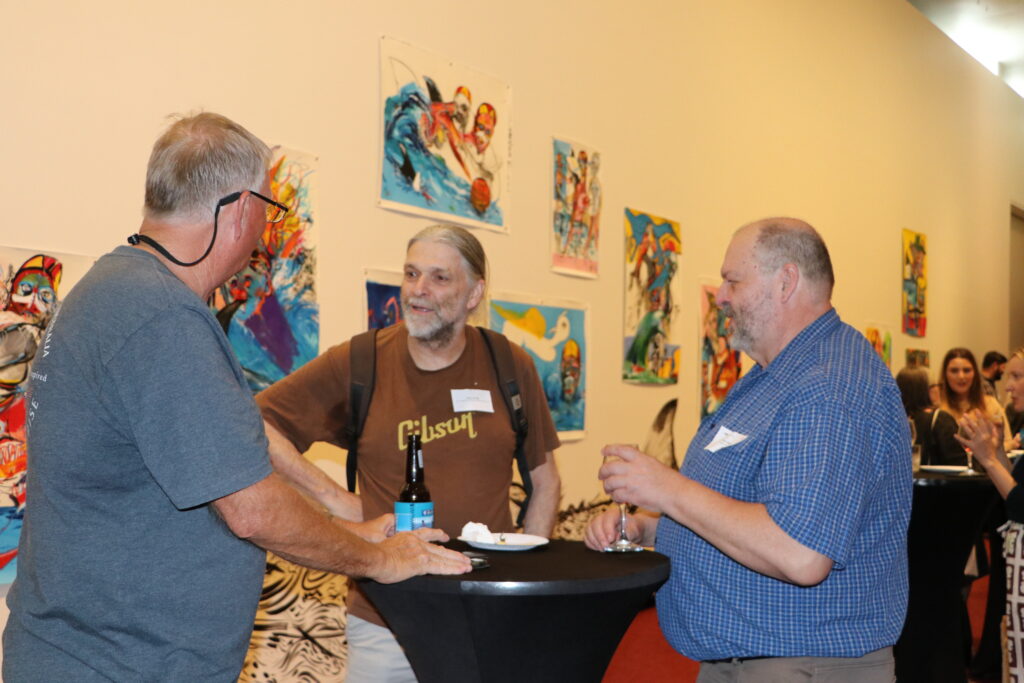
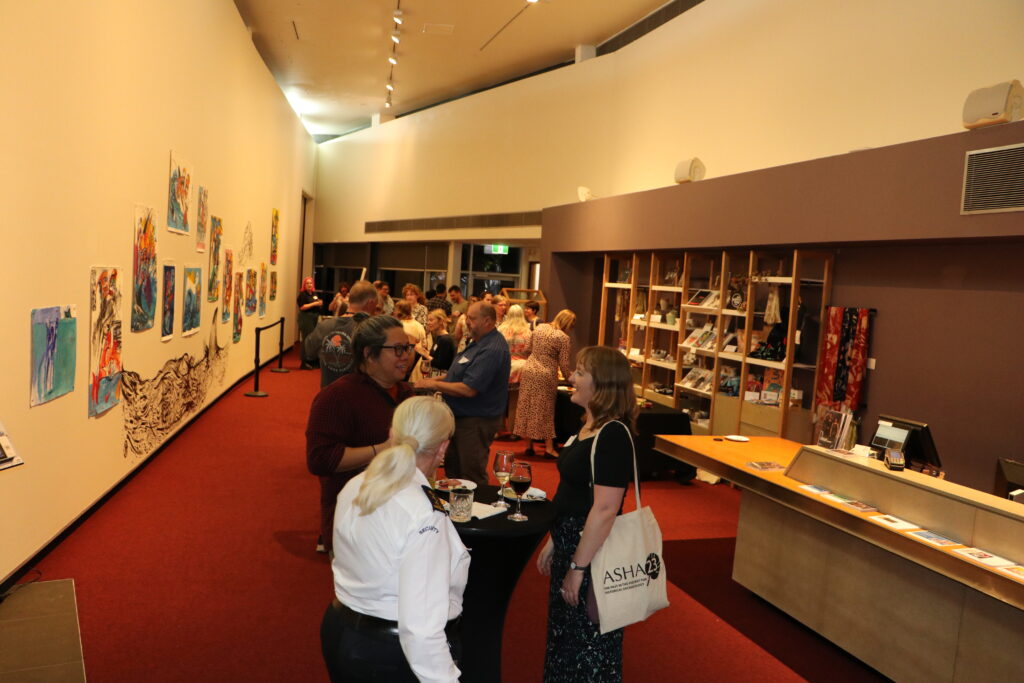
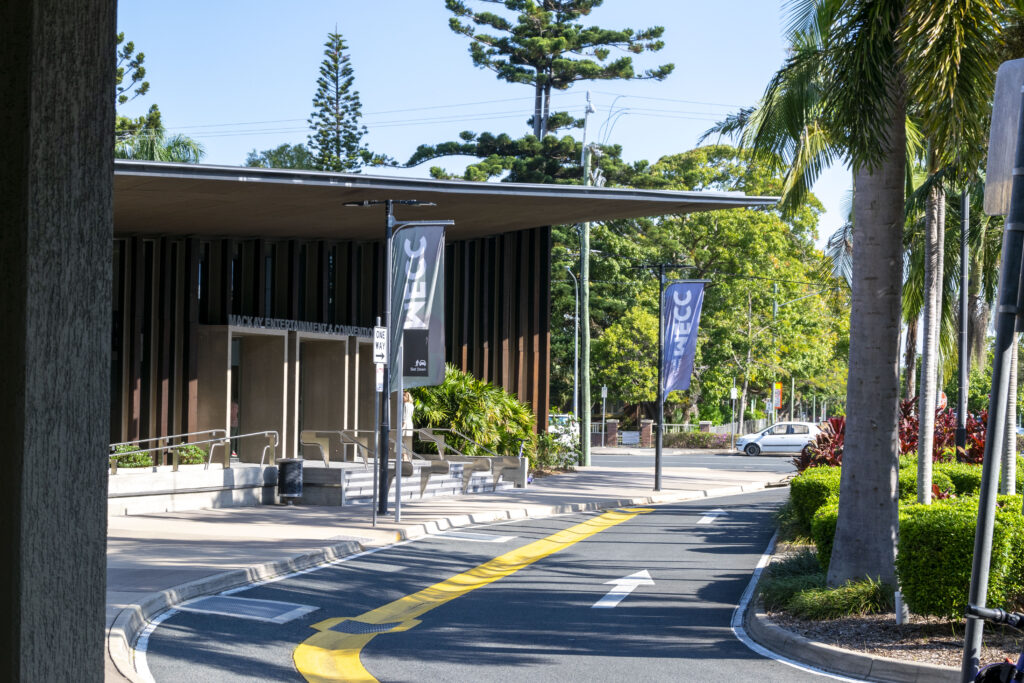
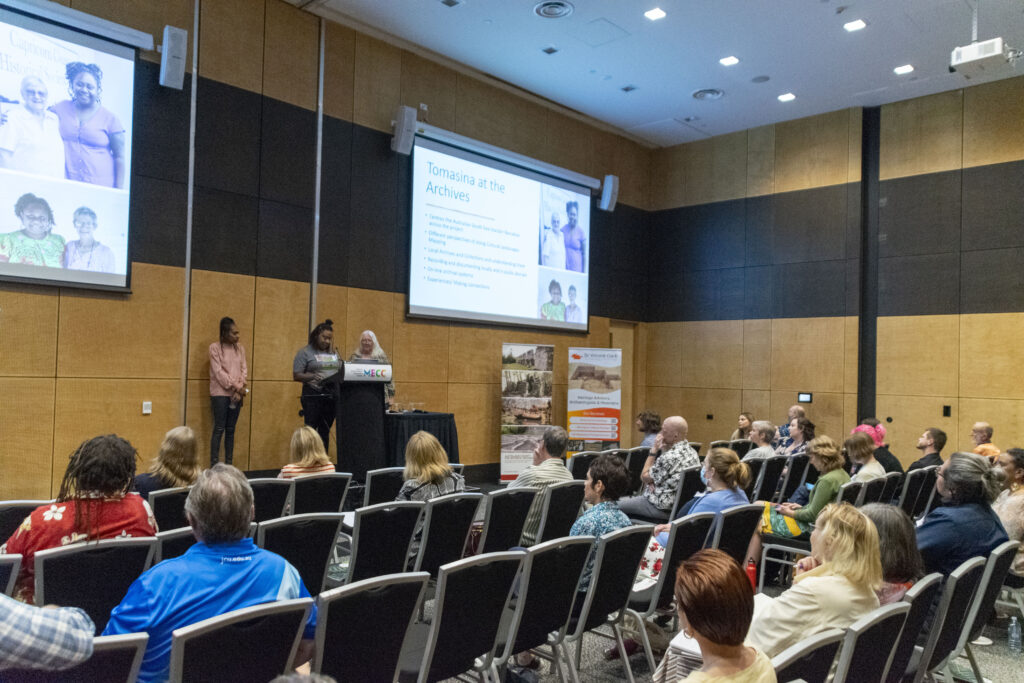
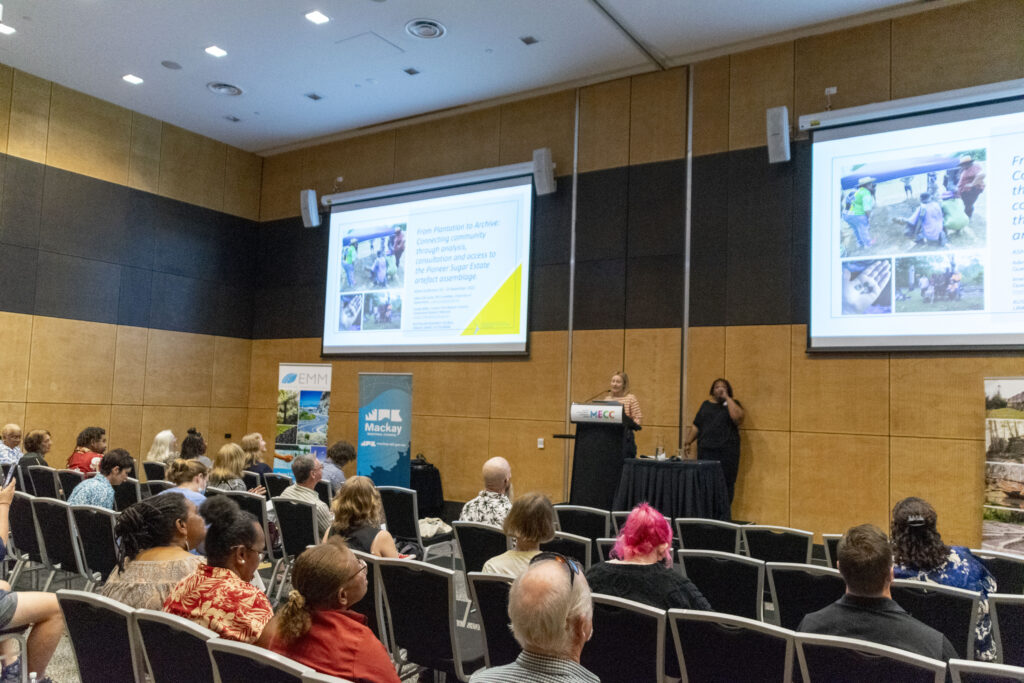
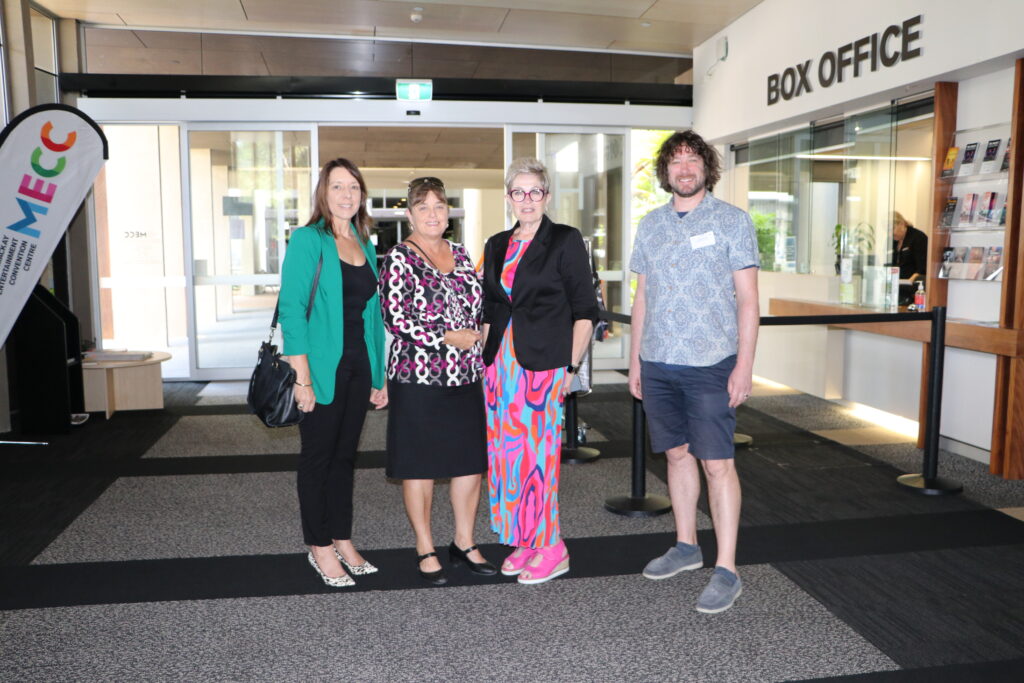
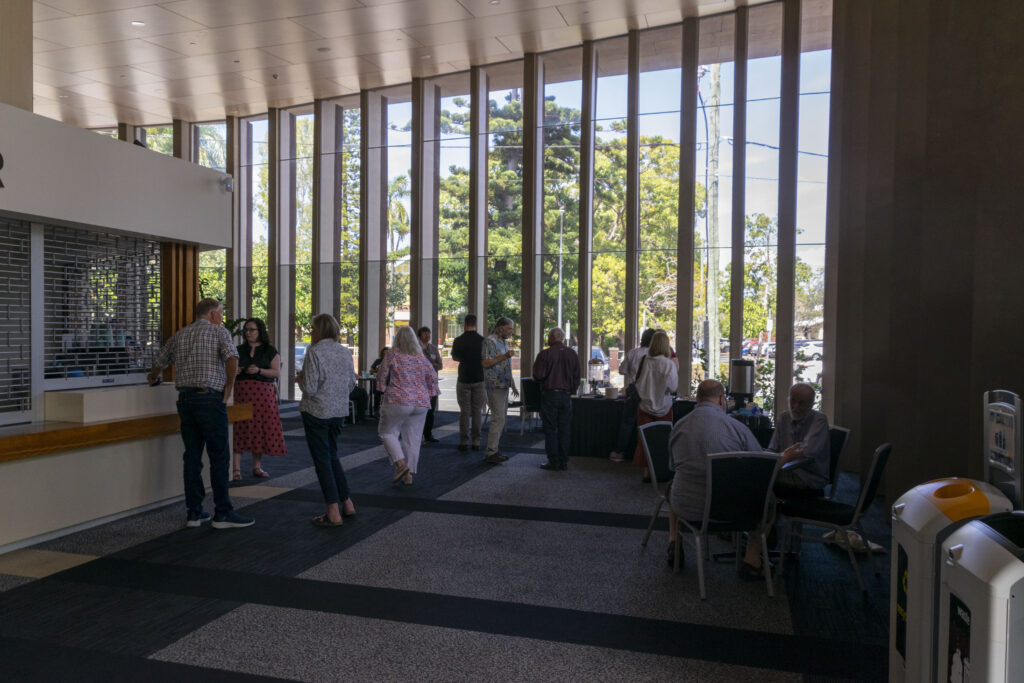
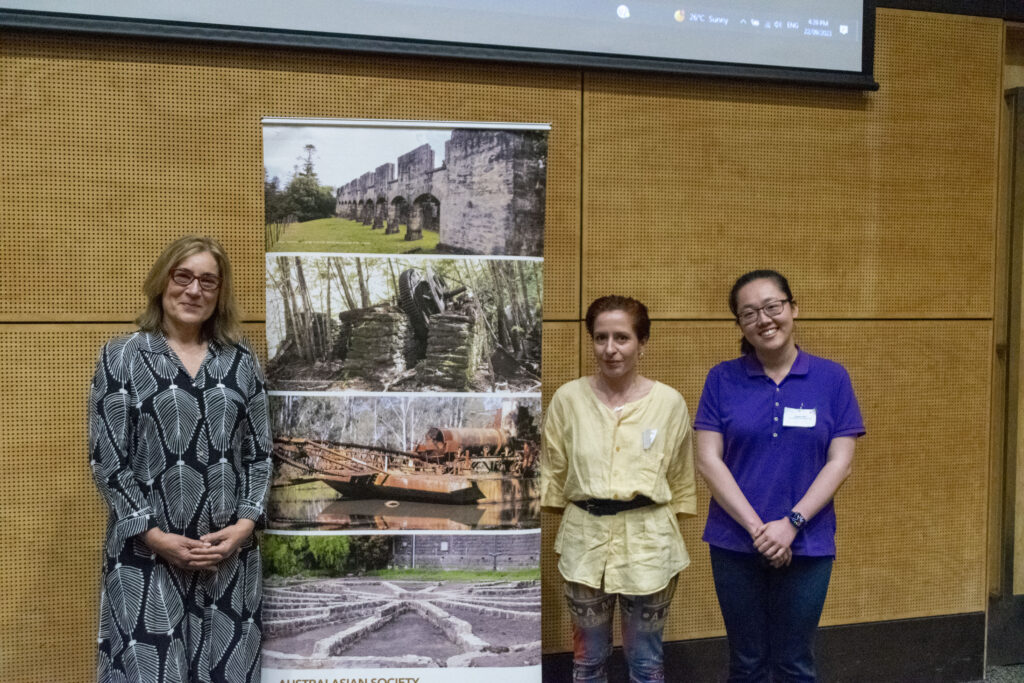
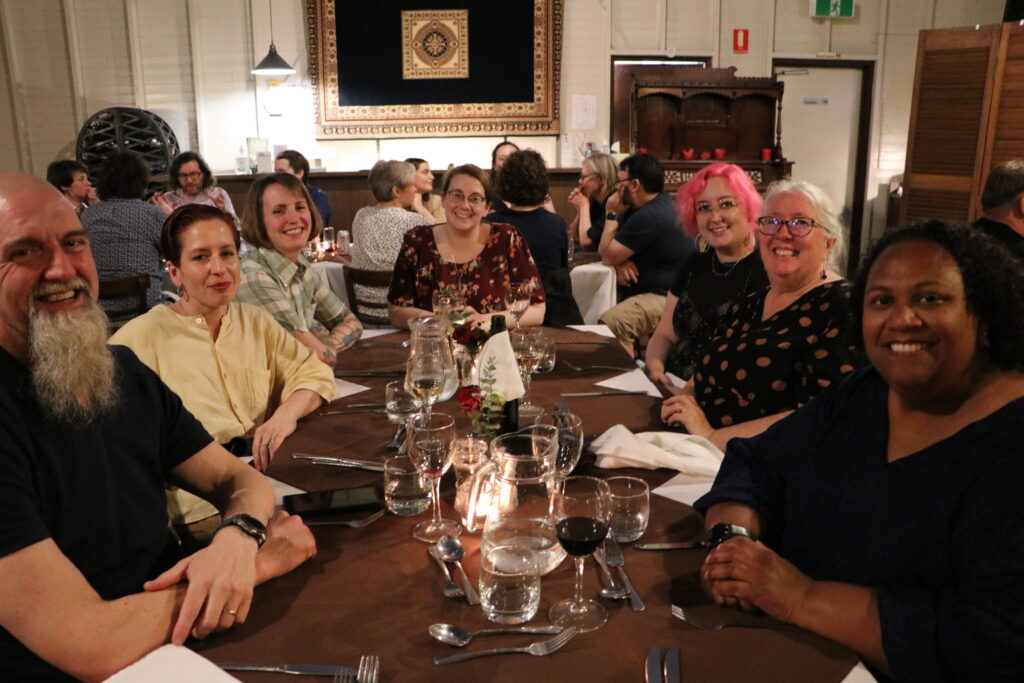
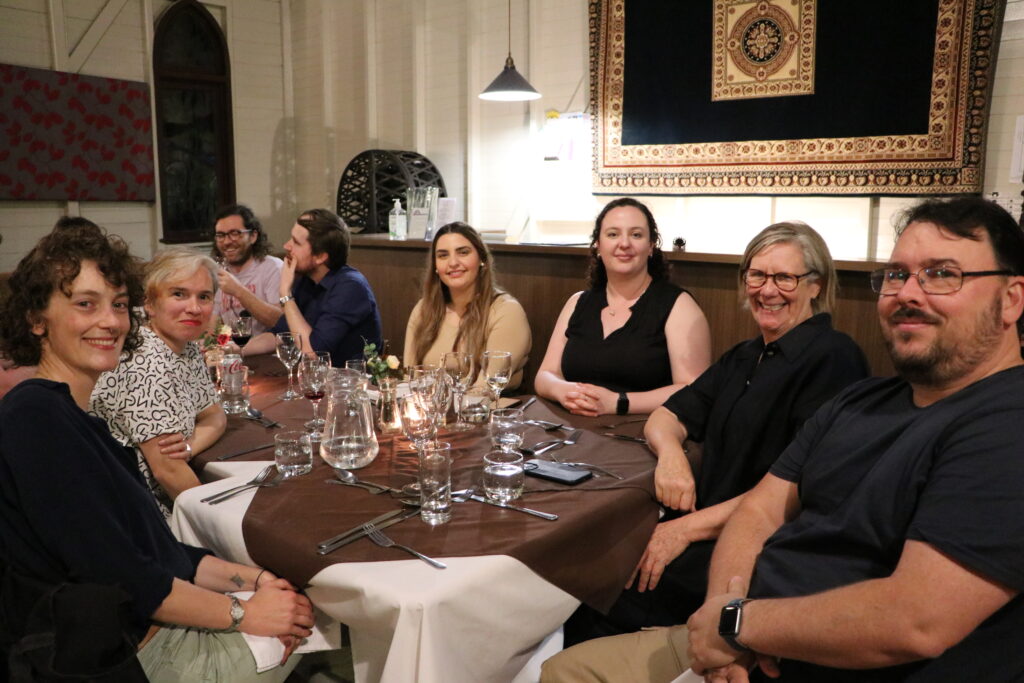
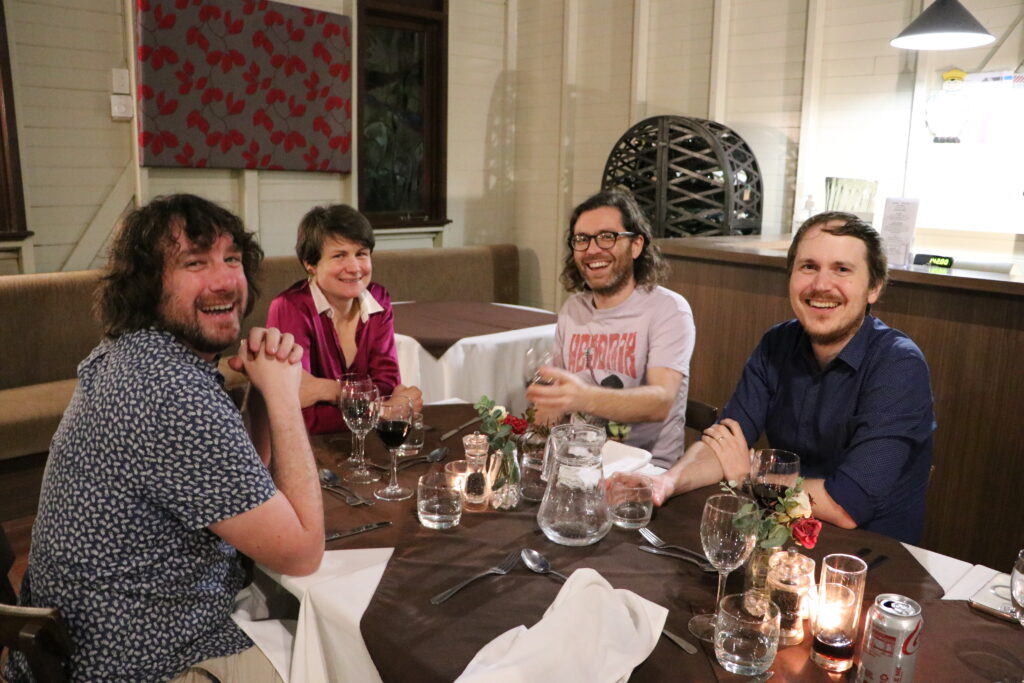
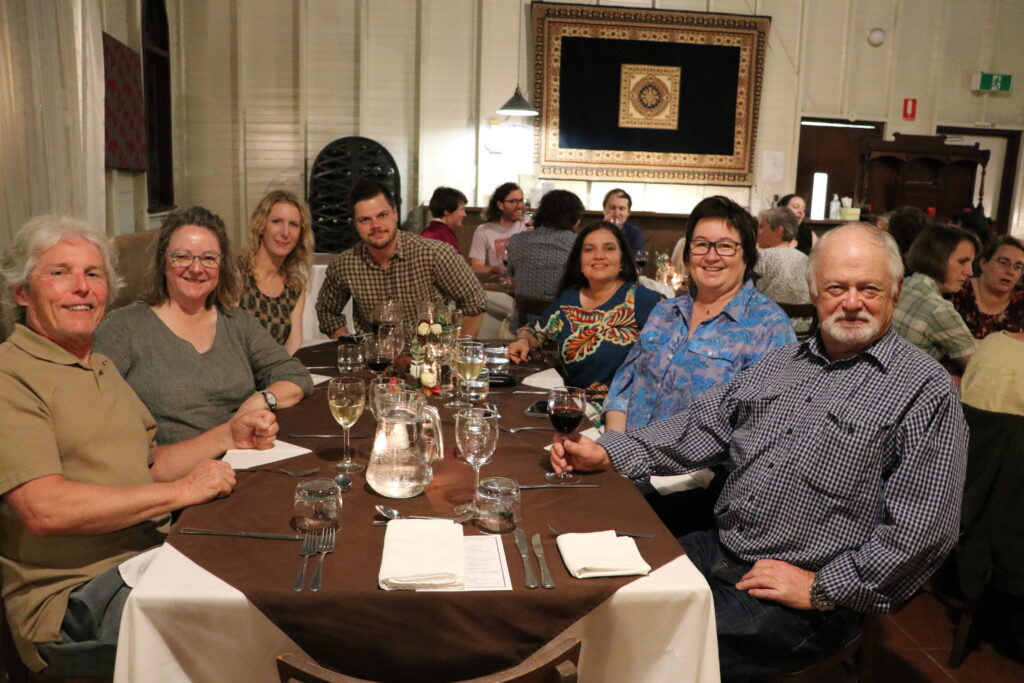
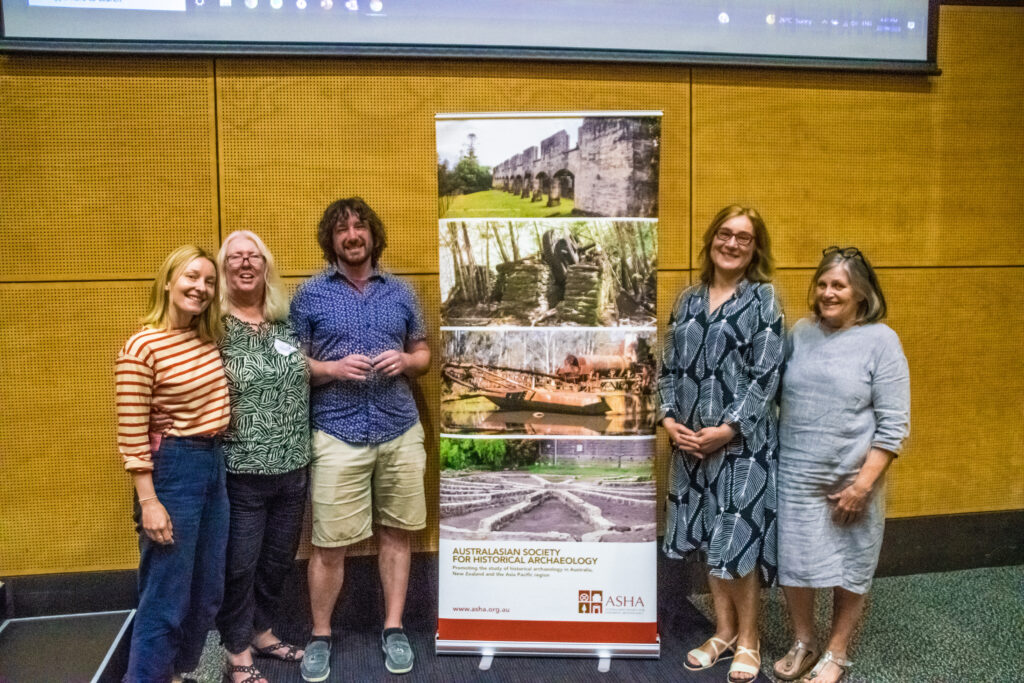
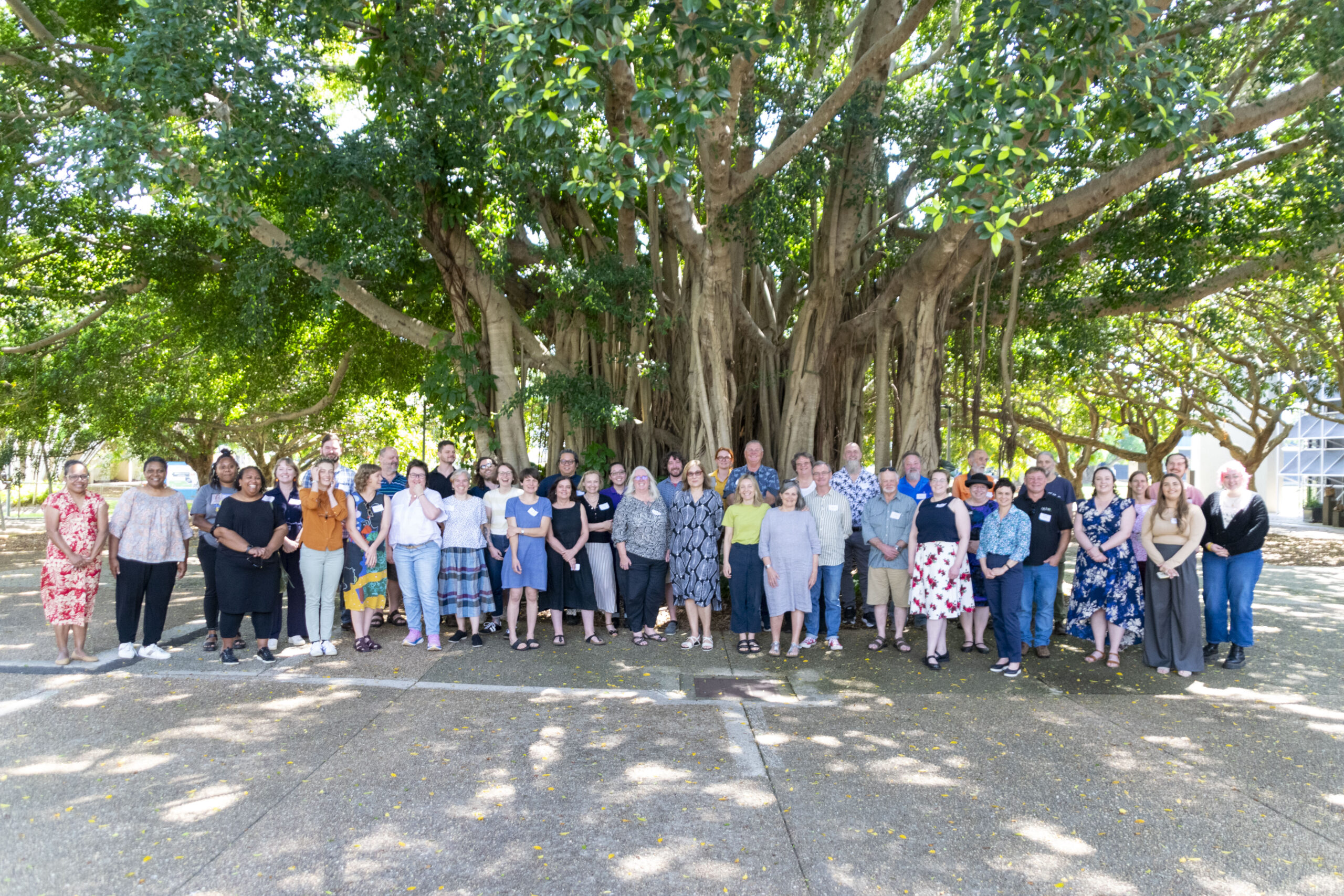
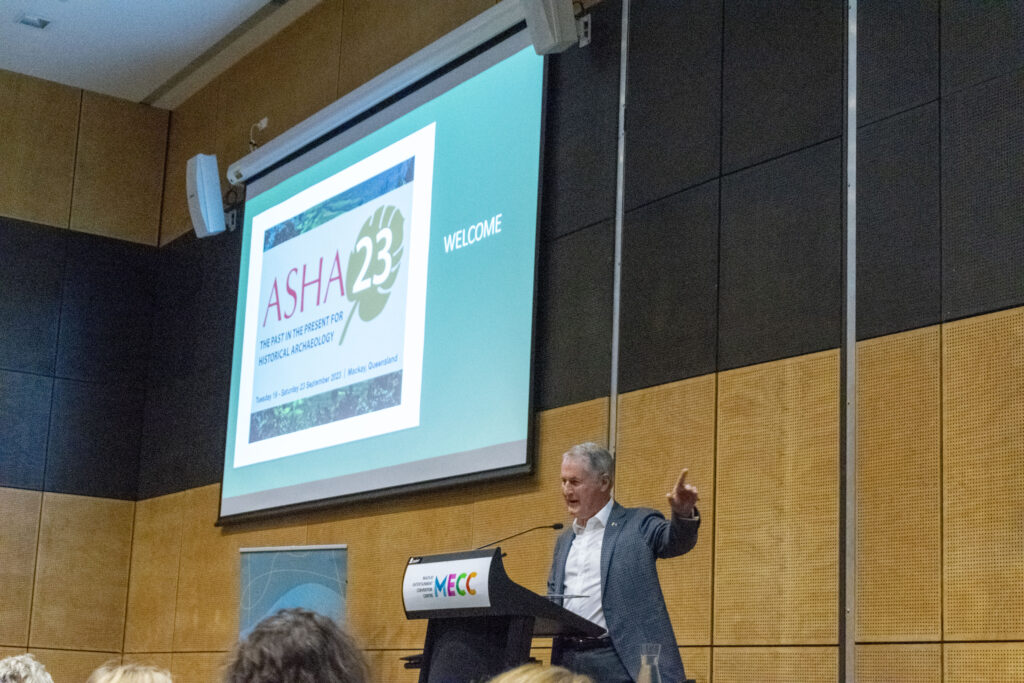
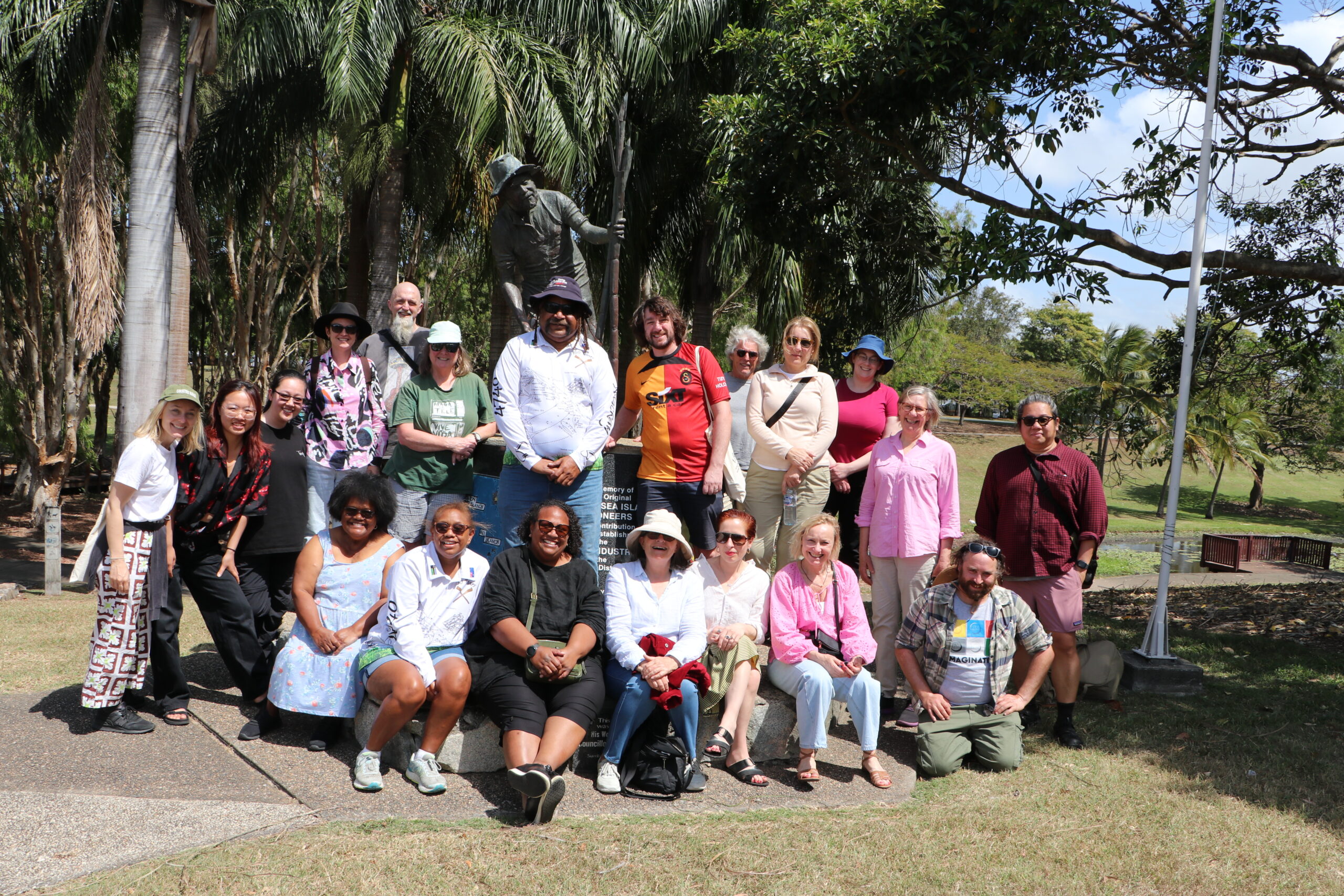
We are excited to announce that the 2023 Australasian Society for Historical Archaeology (ASHA) Conference will be held in the tropical Queensland city of Mackay. Mackay was once the sugar capital of Australia and the broader region acts as a gateway to the Whitsundays.
The conference will run as an in-person event at the Mackay Entertainment & Convention Centre from 19 to 23 September. The conference will commence with a Welcome Function on the evening of Tuesday 19th September. It will officially begin on Wednesday 20th September with a keynote address, followed by conference sessions from Wednesday to Friday inclusive. An end of conference dinner will be held on Friday the 22nd at the Church on Palmer. A field trip will be offered on Saturday the 23rd and include visits to significant sites associated with Australian South Sea Islanders and Mackay’s sugar industry. You can read more about these sites here.
An important note for those attending in person is that the conference will be held during Queensland school holidays so make sure you book accommodation early. Rydges Mackay advise that people signing up to their free Priority Guest Rewards program will receive discounts off the best room rates online, earn and redeem reward points and receive discounts on food and beverage in their restaurant.
For now, please save the date, start thinking about packing your togs for the tropics, imagining a trip to the Barrier Reef and stay tuned for more information.
Conference Dates: 19 – 23 September 2023
Conference Venue: Mackay Entertainment & Convention Centre (MECC)
Registrations: You can register for the conference through Eventbrite here.
Registrations close on Monday 11 September 2023 at 11:30pm. Dinner registrations close on 11 September 2023. ASHA members receive discounted registrations.
ASHA members receive discounted registrations. If you are not a current member, you can join or renew here.
Major Conference Sponsor: Mackay Regional Council – Also many thanks to our other sponsors listed here.
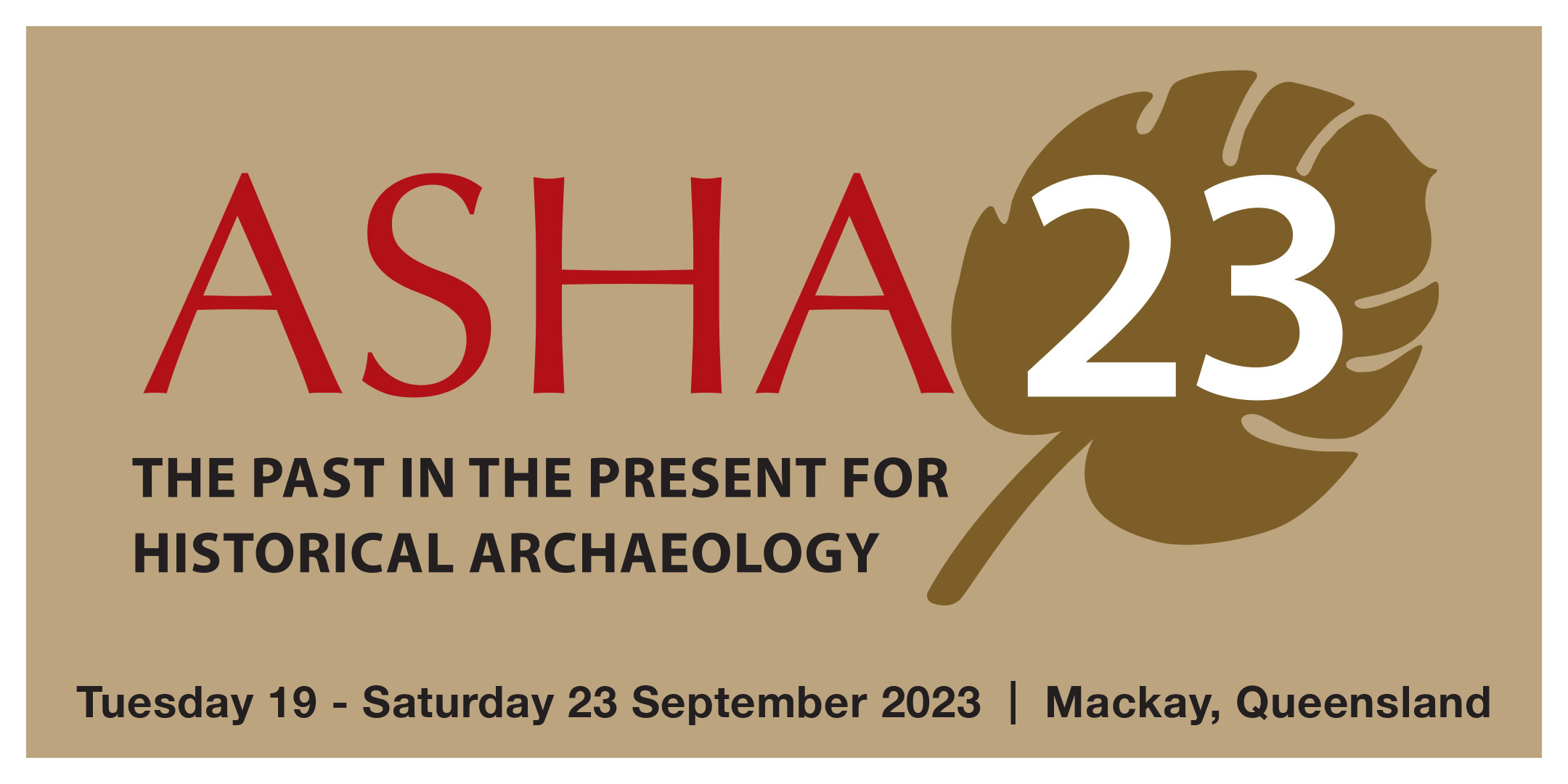
Conference Theme
The conference theme for 2023 is ‘The past in the present for historical archaeology.’
Historical archaeology is not simply a neutral gathering of evidence that explains the past. The sites and objects we work with in the field, lab, and museum comprise important places that resonate directly with living communities. Changing understandings of the value and meaning of cultural heritage are shaping some important debates within historical archaeology today. Heritage practice lives in the tension between intangible and social values and the materiality of the archaeological record. Sites and objects exist in relationship with communities in the present – not only human but also non-humans such as plants, animals, rivers, and Codd-stop patent bottles.
We encourage sessions and presentations that reflect on this complex dynamic between the information about our past and how it is understood and accepted in the present. Examples may include research with relevance to contemporary issues, community-led projects, public interpretation of archaeological heritage, and evolving values in significance assessment.
Conference Programme
The 2023 Conference Programme can be viewed here.
Keynote Speaker – Jeff Cheng
The Past in the Present of the Bunun Country, the Lakulaku River Basin
Taiwan had long been inhabited by the Austronesian-speaking people before the arrival of colonizers. Since the 17th century, the island has been under the control or partial control of various outside powers, including the Dutch (1624-1662), Spanish (1626-1642), Ming loyalist Koxinga and his descendants (1662-1683), Qing Empire (1683-1895), Empire of Japan (1895-1945), and the Republic of China (1945 to the present). These colonizers changed the ways of living for Taiwan’s indigenous people, including the Bunun residing in the Lakulaku River Basin. The Basin which is surrounded by mountains that soar above 3,000 meters in elevation, holds deep historical significance, having once been the ancestral homeland of the Bunun group, while also hosting temporary settlements of the Japanese colonizers. Today, the region is a part of the Yushan National Park, with only a few mountaineers and tourists passing through briefly. Over the past decade, my research has focused on conducting historical archaeological studies within the Lakulaku River Basin. These studies have uncovered invaluable insights into both Japanese and Bunun cultural heritage sites, which bear immense significance for contemporary indigenous communities.
In this presentation, I aim to shed light on two key aspects of my research. Firstly, I will delve into the material aspects of life among the residents of the Japanese police outposts that once occupied the region between the 1920s and 1940s. By examining the consumption patterns, including the utilization of Japanese goods and culinary practices, I will explore how these aspects contributed to forming the residents’ identities, both as colonizers and as a diasporic group within the Taiwanese mountainous landscape. Secondly, I will introduce the archaeological investigations conducted in collaboration with the local Bunun community, focusing on exploring their abandoned settlements that emerged as a consequence of relocation plans implemented by colonial authorities under Japanese rule. These investigations have been conducted through a combination of archaeological surveys and the Bunun cultural activities, “root-seeking.” This collaborative approach seeks to comprehensively understand Bunun’s traditional landscape while building relationships with living indigenous Bunun people.
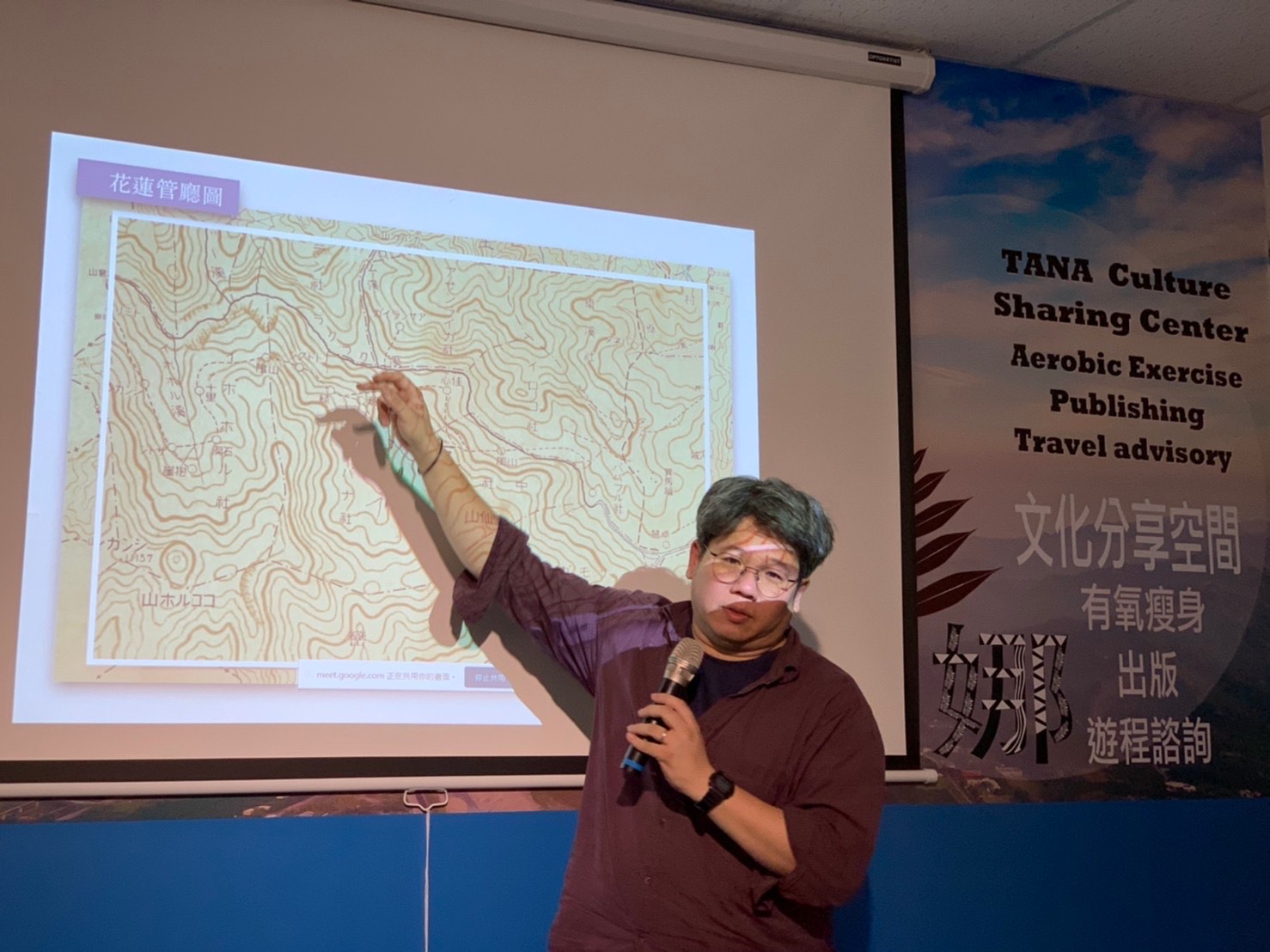
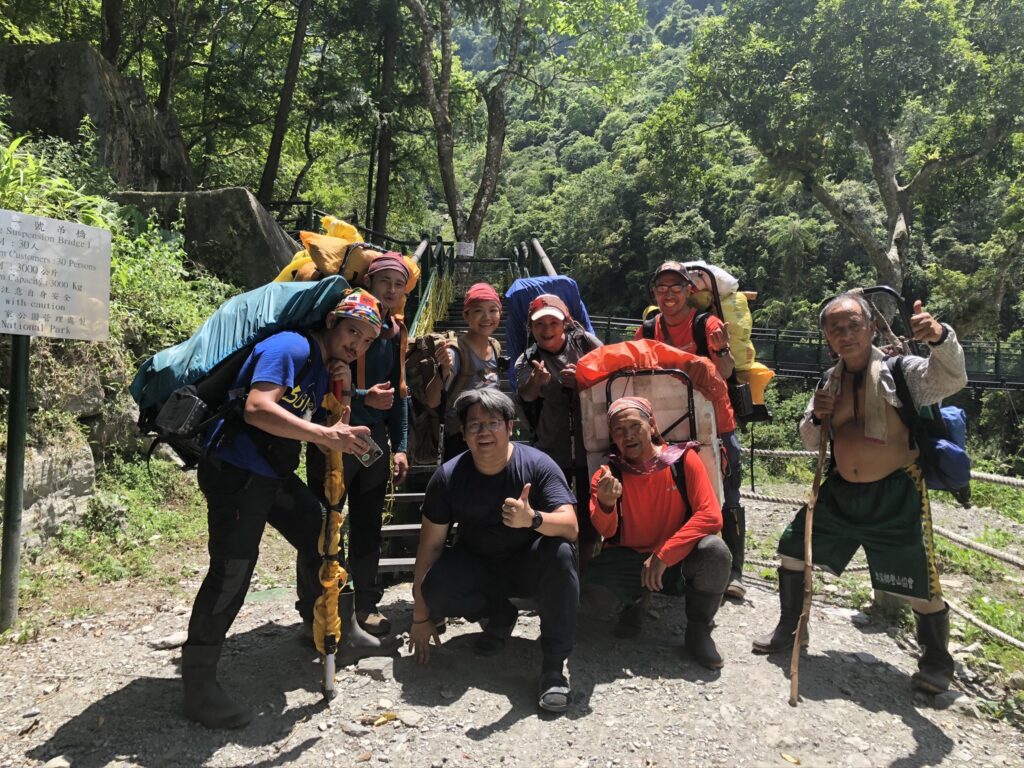
Jeff Cheng Biography
I am a postdoctoral Fellow at the Research Center of Humanities and Social Sciences, National Taiwan University. I trained at the National Tsing Hua University and Oxford University before receiving my PhD from Boston University. As a historical archaeologist based in Taiwan, I specialize in exploring the island’s colonial history. My primary focus is on researching cultural heritage sites in remote mountainous regions of Taiwan. Specifically, my research centres around investigating the police outposts established by the Empire of Japan between the 1920s and 1940s. These outposts were an integral part of the colonial administration of indigenous territories during Japan’s occupation of Taiwan from 1895 to 1945. By studying these sites, I aim to gain insights into the dynamics of colonial rule and its impact on local indigenous communities. Additionally, I delve into the abandoned indigenous settlements that emerged as a consequence of relocation plans implemented by colonial authorities. Through the examination of these sites, I seek to understand the ramifications of colonization on the daily lives and cultural practices of the indigenous population. By approaching Taiwan’s colonial past through a material cultural perspective, my research contributes to a deeper understanding of the historical experiences and legacies of indigenous communities.
Call for Papers and Posters
The Call for Papers has now closed.
Sessions
We have an excellent range of sessions for the conference, and invite offers of papers in the listed sessions, as well as general papers. (Session abstracts are listed below – click to expand – or download a pdf)
WORKSHOP: Why does archaeology matter?
Session Convenor: Kate Clark
There is a growing body of international evidence for the benefits of archaeology to wellbeing – from the mental health benefits for veterans of taking part in fieldwork or for older people of engaging with objects in care settings. And there is now evidence for the economic benefits of the archaeology sector as a whole.
But what do we know for Australia? This workshop is an open invitation to ASHA members to share their knowledge and experience of the wider benefits that archaeology can bring to communities, to places, to the environment and to the economy.
It will go beyond significance to ask questions about the wider social, economic, environmental and creative values of storytelling through places and objects (aka archaeology). We will also explore some of the barriers to realising those wider values. The findings will contribute to a wider AICOMOS/University of Canberra study that is looking at ways to embed cultural heritage into wider public policy in Australia.
Proposed format: Ideally a 1.5-hour workshop in round table layout where people can see each other rather than in a lecture theatre.
Convenor biography: Kate Clark is an industrial archaeologist with over four decades experience in heritage and museums in Australia, Wales and England. She has a special interest in the public value of cultural heritage and in its contribution to wellbeing. She is currently undertaking an AICOMOS/University of Canberra study on embedding cultural heritage into wider public policy in Australia and is an adjunct at Western Sydney University. She also sits on the ACT Heritage Council. [email protected]
Humanising artefacts in the present: artefact studies in Australasian historical archaeology
Session Convenors: Denis Gojak and Bronwyn Woff
Artefacts are at the core of archaeological practice and interpretation. As objects they capture cultural behaviour in intent, use and change through time. As finds we invest in their discovery, analysis and curation. They provide a tangible two-way link between past and present, but how do we ensure that we don’t lose sight of the intangible human connection that these objects can contain and inspire? We encourage topics addressing the session theme of connection between people, both past and present.
These may draw out stories of real historical individuals and how object(s) factored into their lives, show connections between contemporary people and the past through interpretation and interaction with archaeology and artefacts, or discuss more theoretical issues such as analysis, bias and how our own preconceived ideas colour our interpretation of artefacts and the past. You may be inspired to tell a personal story of your own connection to an object through the archaeological process – how ‘doing archaeology’ connects you to the past.
We also welcome papers addressing artefacts and their study as objects themselves or within their archaeological context. These could include detailed understandings of a particular artefact category, assemblages, specific objects or the background to archaeological artefact behaviour.
Proposed format: The session offers an opportunity for both full-length (15 mins + questions) and short (5 slides – 7 mins) presentations, and encourages presentations by emerging professionals.
Community Archaeology: Reflections on a Variety of Projects
Session Convenors: Helen Nicholson and Matthew Kelly
Archaeologists now recognize the important role that community involvement and collaboration can have in their research and site work. From gathering oral history, genealogical research, deploying volunteers, and public interpretation through to ongoing stewardship of heritage sites, there are multifarious ways in which archaeologists now engage with the wider community around them. Just as varied are the rationales, motives, and results associated with this engagement.
This session will endeavor to showcase a variety of archaeological and heritage projects which demonstrate the importance and efficacy of this engagement.
Proposed format: The session organizers would welcome papers addressing, public participation in excavations or artefact identification/analysis, public outreach programs, oral history and its application in archaeological contexts, interpreting archaeology for local communities, community stewardship of sites, collaboration with local communities in archaeological projects.
Archaeology, collections, and Australian South Sea Islander Lived Identities: Synthesising a five-year project
Session Convenors: Adele Zubrzycka and James L. Flexner
The Australian South Sea Islander Lives Identities project began in 2018. It was designed to bring together research into museum collections, archaeological sites, cultural landscapes and intangible heritage in partnership with Australian South Sea Islander communities in tropical Queensland. Australian South Sea Islanders are the descendants of Pacific labourers, primarily from Vanuatu and the Solomon Islands but also other places, who were imported to Queensland and northern New South Wales to establish the Australian sugarcane industry between 1863-1900.
The project used a community-oriented approach to help facilitate Australian South Sea Islanders from Ayr, Mackay, Rockhampton, and Joskeleigh to record, develop and re-evaluate their multifaceted heritage. This session will bring together perspectives from members of the Australian South Sea Islander community, academics and professionals involved in the project, and external researchers, to share their experiences working in Australian South Sea Islander research. Papers will discuss advantages, complexities and limitations of different approaches to the Australian South Sea Islander past, including findings from field archaeology, material culture, landscapes, and memories, and insights into the development of the community-oriented approach within the project.
Proposed format: We are proposing a mixed format of short (10 minute) or long (20 minute) papers with 10 minutes allocated for questions and discussion at the end of each session.
New Materialist approaches to archaeologies of capital
Session Convenor: Nicholas (Nick) Pitt
There’s nothing new about archaeologies of capital. For decades, many have placed capitalism at the centre of historical archaeology. Yet it has remained at the fringes for most historical archaeologists working in our region, perhaps due to difficulties relating theory, ideology and global systems to actual sites and objects. Two interrelated developments within archaeology and history over the past decade or so arguably offer ways new ways to think through archaeologies of capital.
Firstly, archaeologists have contributed to a broad range of ‘new materialist’ and ‘more-than-human’ approaches coming out of the humanities and social sciences that focus on the relationships between humans and other-than-human things and thereby offer new ways to link the archaeological record to larger human stories.
Secondly, historians have begun to use new materialist approaches to weave together cultural, economic, and environmental histories. A conscious focus on things and more-than-human actors is bringing gender, race, and ecology to histories of capital.
This session seeks papers that think through the archaeologies of capital in our region in new ways, sensitive to past and present relationships between people and things. Case studies at a range of scales are welcome, from a shopkeeper and her wares, to a listed company and its ports
Using technology and science of the present to investigate the past
Session Convenor: Greg Hill, Tracy Martens , Rebekah (Bek) Kurpiel, Susan Lawrence
Historical archaeology is an investigative process that draws upon an eclectic range of sources and methods. New scientific techniques and applications of established techniques in novel contexts continue to enhance and expand on information gleaned from traditional survey and excavation. This developing area of inquiry continues to enhance both macro approaches that connect sites to their landscape context, and micro approaches that retrieve information from features often invisible to the naked eye.
State-of-the-art 3D modelling and remote sensing approaches, such as LiDAR, photogrammetry, and Ground Penetrating Radar can improve how sites are analysed, interpreted, documented, compared and managed, while also facilitating community understanding and connections to the past. In addition to new methods, established analytical methods applied to previously understudied materials, like archaeobotanical remains and archaeological textiles and fibres, are offering new data sources and perspectives on the past that can expand and improve archaeological investigations.
Proposed format: This session invites 15-minute presentations that are focused on the development and/or application of scientific and specialist technical methods to historical archaeology projects.
Melbourne Archaeology: Future Directions
Session Convenor: Megan Goulding
2023 marks 30 years since the ground-breaking Melbourne Central Activities District Archaeological Management Plan was completed by Marie Fels, Siobhan Lavelle and Dana Mider (1993) for the then Victoria Archaeological Survey. This important piece of work led to over 800 historical archaeological sites being listed on the Victorian Heritage Inventory within Melbourne’s CBD creating the statutory context within which over 200 archaeological investigations have since been undertaken.
Over the past three decades of archaeological investigation a significant body of knowledge has emerged around the post settlement occupation of Melbourne and its rapid development as a modern city. Archaeology has shone a light on the fabric of Melbourne’s history and in so doing has contributed to a deeper appreciation of the history of Melbourne and its people.
In reflecting on what has been – the development of Melbourne and the remarkable insights into its history that has come from investigations into its archaeological traces – there is now an opportunity to look forward in order to contemplate what might be; where is archaeology heading in Melbourne? What opportunities and pitfalls lie ahead? What will the next 30 years of archaeological investigation look like and what might be achieved?
In this session we are seeking papers that look forward into a future archaeology of Melbourne by drawing upon what we have learned and imagining what we can achieve in terms of improved methodologies and techniques for site recording, synthesis of data, and interpretation.
Fast presentations for the past and the present
Session Convenor: Geraldine Mate
This high-energy lightning round will provide stimulating and fast-paced updates on research, commercial and community-based projects. This informal session gives participants an opportunity to deliver a succinct 3-minute talk on forthcoming, current and recently completed projects connecting historical archaeology with communities.
Presentations are invited that focus on projects that address community engagement, changing and varied understandings of cultural heritage, and approaches to interpretations of archaeological heritage for the public. More general topics addressing the conference themes will also be welcomed.
Proposed format: Questions for presenters will be scheduled at the end of the session. A maximum of 3 slides is recommended.
Posters
A poster session will also be available. We invite submissions for posters addressing the theme of the conference, conference session themes or that present on current activities related historical archaeology.
Those wishing to do poster presentations should submit a poster title and short abstract to [email protected] by 21 August 2023.
Submissions should include the full names of all authors, along with institutional affiliations and contact details for at least one of the authors.
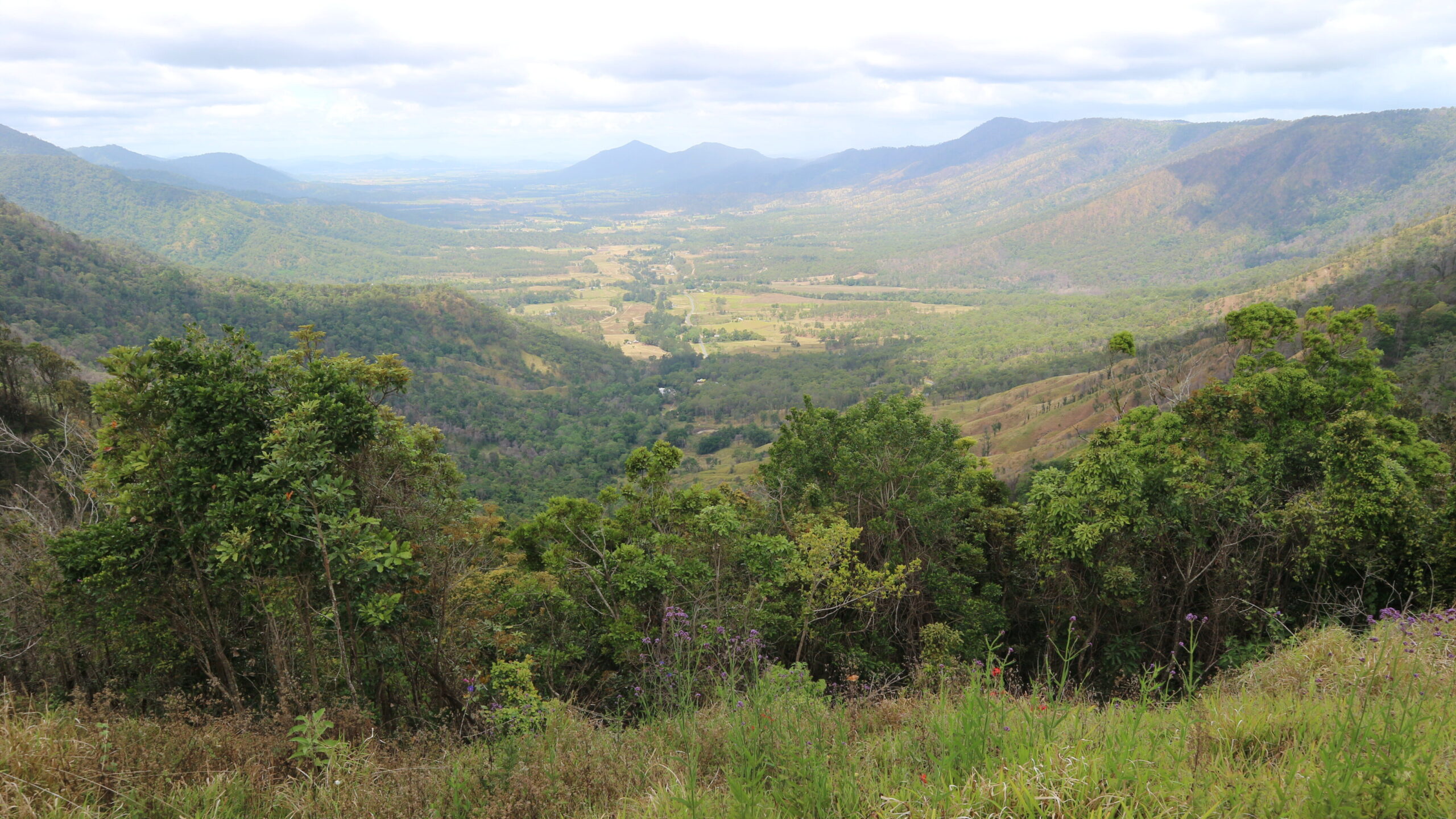
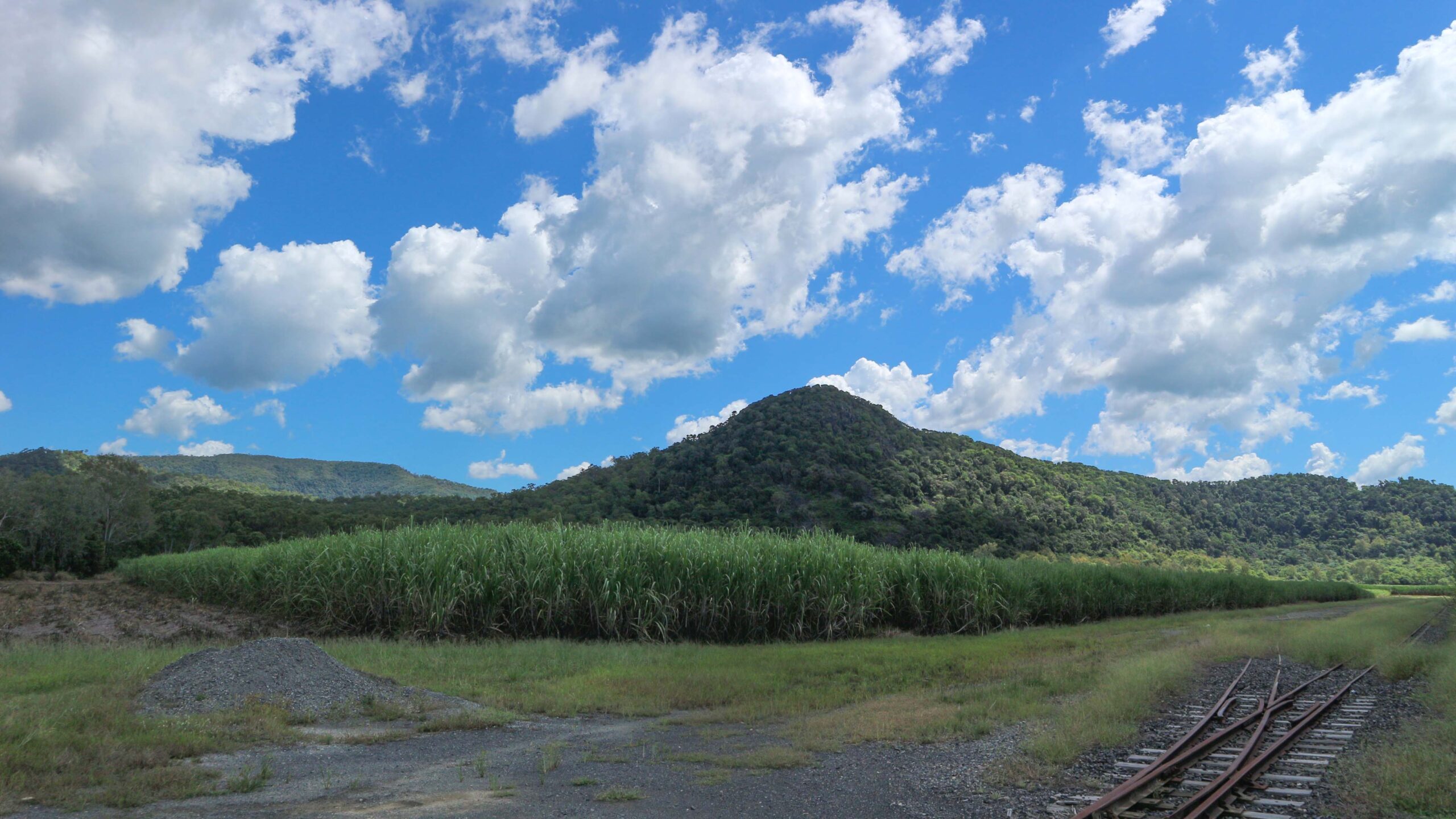
Conference Location
The 2023 ASHA conference will be held at the Mackay Entertainment & Convention Centre.
View Larger Map
Registrations
You can register for the conference through Eventbrite here.
Registrations close on Monday 11 September 2023 at 11:30pm. Dinner registrations close on 11 September 2023. ASHA members receive discounted registrations. If you are not a current member, you can join or renew here.
| Registration rates (AUD) | early bird | full | day-rate |
|---|---|---|---|
| Member | 390 | 440 | 160 |
| Non-member | 470 | 530 | 200 |
| Concession (student/unemployed/over 65) member | 270 | 300 | 130 |
| Concession (student/unemployed/over 65) non-member | 330 | 400 | 140 |
| Dinner | 80 | ||
| Field trip | 70 |
Conference Tours and Activities
Field Trip: History and Heritage of South Sea Islanders and Mackay’s Sugar Industry
The conference field trip will take in cultural heritage sites relevant to Australian South Sea Islanders and the development of the sugar industry. We will start in the morning at the Leichhardt Tree where visiting ships used to dock in the Pioneer River, followed by a tour of previously unmarked kanaka burials in the so-called “pagan” area of the Mackay Cemetery. From there we will proceed to Homebush, visiting the old South Sea Islander Meeting Hall and ruins of the Old Homebush Sugar Mill. After a break for lunch, the tour will then continue to the Hut, an Australian South Sea Islander meeting place and Mirani Museum, which holds a collection of South Sea Islander artefacts before returning to Mackay in the evening.
The field trip will include a packed lunch.
The field trip can be booked via Eventbrite here. Registrations close on 14 September 2023.
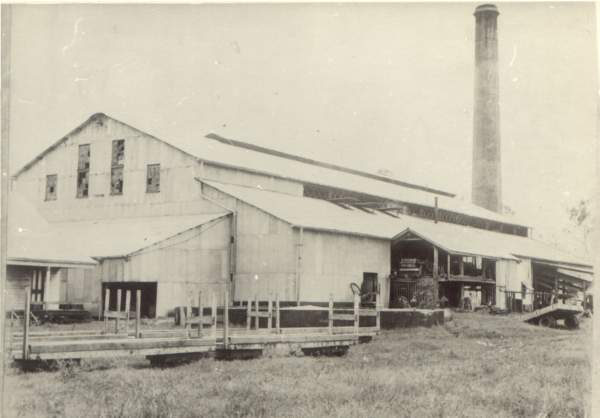
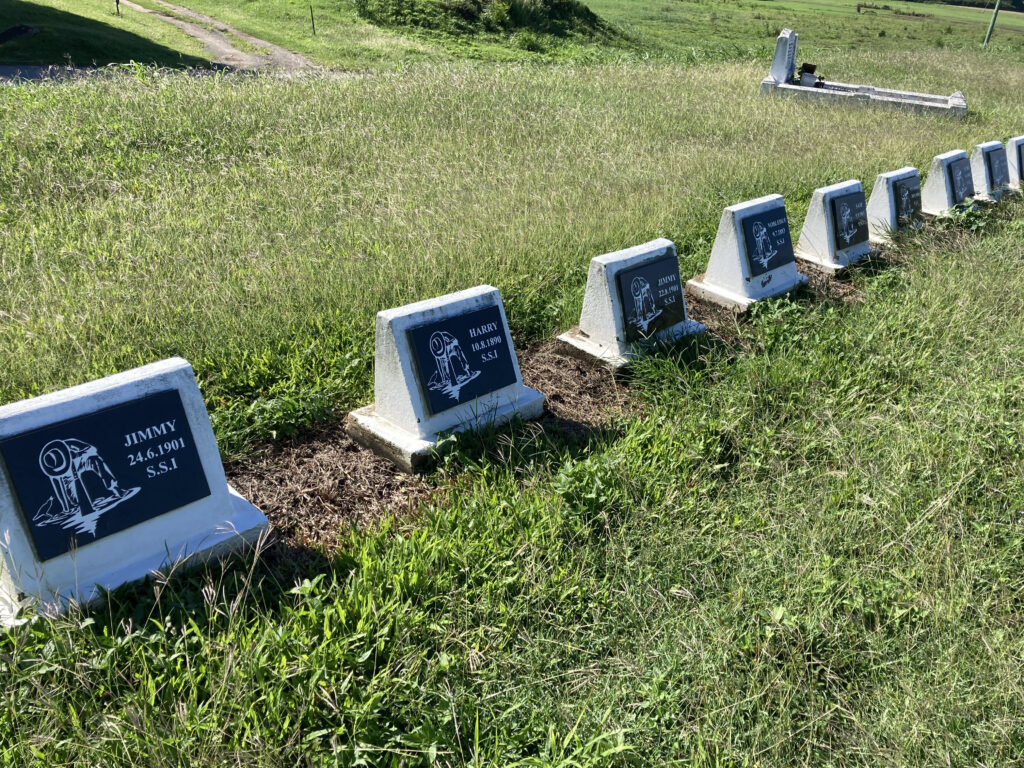
Mackay CBD Art Deco Walking Tour
On Wednesday afternoon (20th of September), enjoy a guided walk around the classic Art Deco buildings that reside in one city block at the heart of Mackay. Led by local historian Nicholas McDougall, the walk explores Mackay’s rich art deco heritage, and discusses the people and business that shaped the Sugar City in the early 20th century. Departing from the front of The Australian Hotel (cnr Victoria & Wood St) Mackay at approximately 5:30pm.
Fee for the tour is $15 and should be booked directly with the provider via Eventbrite.
The walk is available to all delegates and their families and will run for 90 minutes. It is recommended that you bring a hat, water bottle and wear comfortable walking shoes.
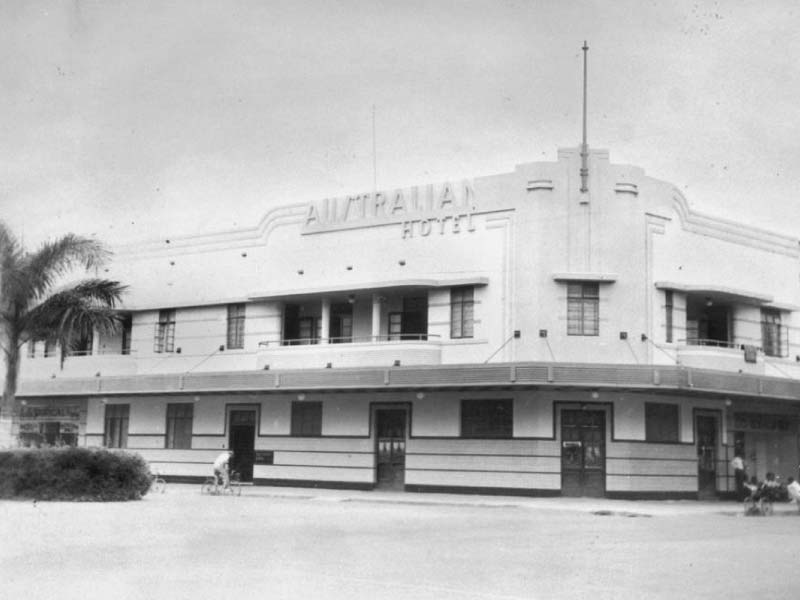
Wildcat Mackay Day Tour
Ever wanted to experience the amazing islands off the coast of Mackay? Wildcat Mackay is a fully inclusive day tour to one of the 5 amazing untouched islands of the South Cumberland Islands (Keswick, St Bee’s, Scawfell, Cockermouth or Brampton Islands). Travel with the experienced crew and visit the beautiful bays, snorkel the stunning coral gardens, try a stand-up paddle board or simply relax on the sundeck with a drink and soak it all in.
Wildcat Sunset Cruise Watch the sunset over the Mackay coastline while you enjoy a glass of champagne, some tasty nibbles and chilled-out tunes with our first class crew. Each sunset is unique and the vast array of stunning natural colours is the ideal backdrop for your evening onboard Wildcat.
The cruise will last approximately two hours, which is the perfect time for you to cruise around the marina while taking in the stunning harbour views and night lights. The sunset cruise departs daily at 5:30pm and returns at 7:30pm – just in time to visit one of many of the amazing restaurants at the Mackay Marina. Please contact the friendly staff at Mackay Tourism to book either of these tours via [email protected]
Accommodation
An important note for those wishing to attend is that the conference will be held during the Queensland school holidays, so make sure you book your accommodation early. Rydges, Mackay have advised that people signing up to their free Priority Guest Rewards program will receive discounted room rates, online points and discounts on food and beverages in their restaurant.
Additional accommodation ideas can be found here.
Visiting Mackay
There’s plenty to do in Mackay before or after the conference. Check out the links below for more information:
- Getting around Mackay – click here
- Accommodation – click here
- Dining Guide – click here
- Tours– click here
- Self-Drive itineraries – click here
- What’s on – click here
- Mackay Region Visitor Guide by Vink Publishing – click here
- Mackay Region Blog – Stories – click here
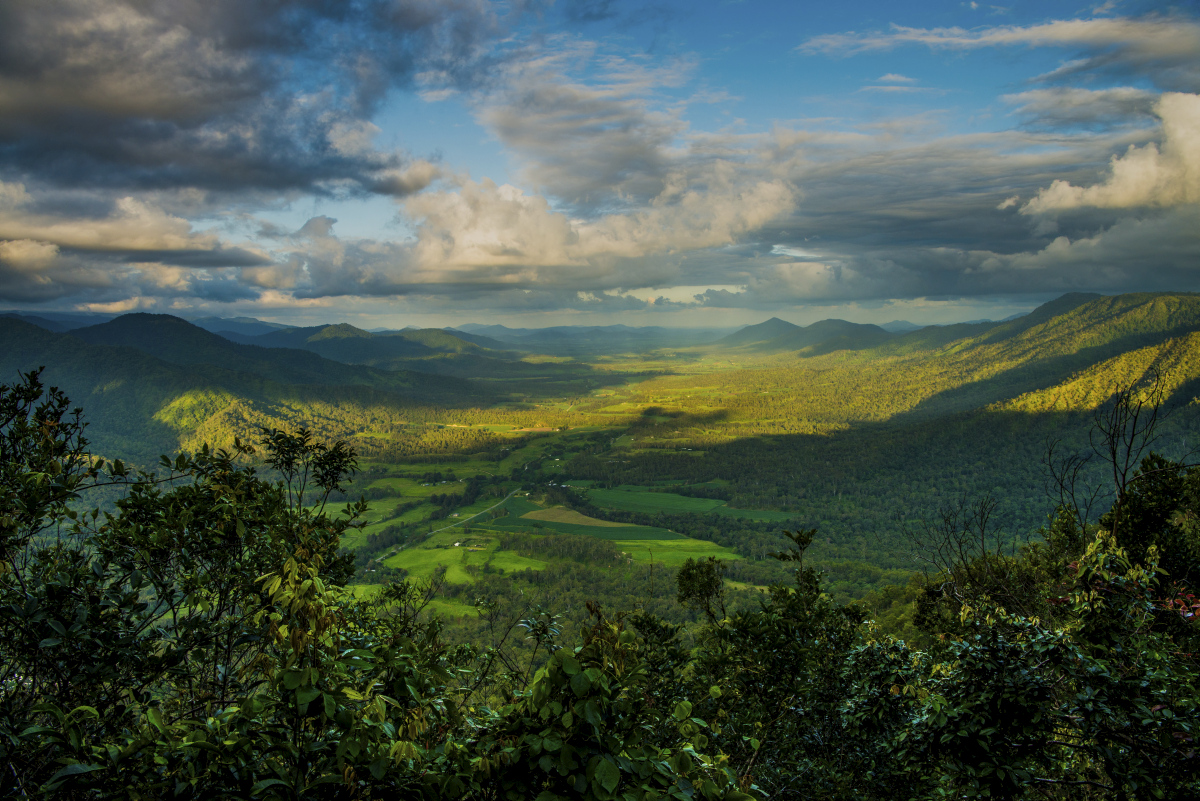
Key Dates
| 26 May 2023 | Call for session proposals closes |
| 20 July 2023 | Call for papers opens |
| 1 August 2023 | Registration opens |
| 21 August 2023 | Early bird registration closes |
| 16 August 2023 | Call for papers closes |
| 21 August 2023 | Call for posters closes |
| 19 September 2023 | Welcome function |
| 20 and 21 September 2023 | Conference papers and AGM |
| 20 September 2023: 5:30-7pm | Art Deco Walking Tour |
| 22 September 2023 | Conference papers and gala dinner |
| 23 September 2023 | Optional field trip |
Sponsorship
We would like to thank our conference sponsors!
Major Conference Sponsor
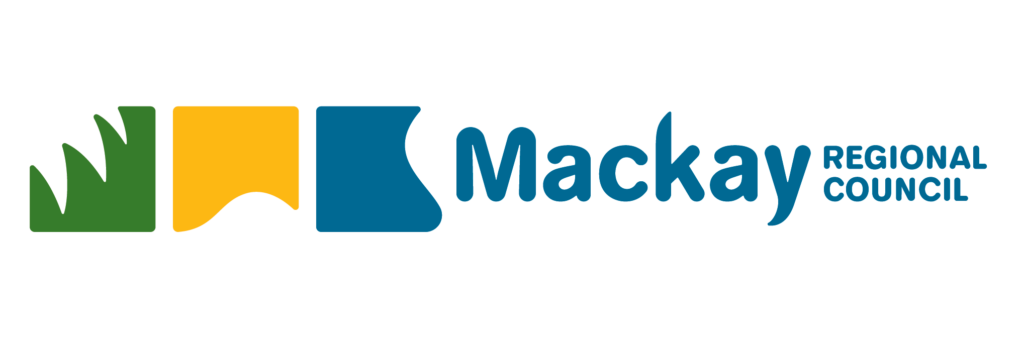
Stoneware Sponsors
Earthenware Sponsors
Best Student Paper
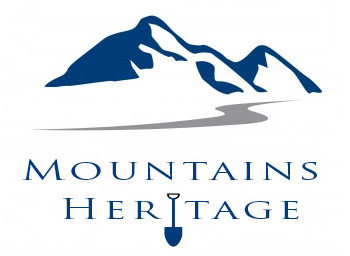
Best Conference Paper

Best Poster
Anonymous
We have several options available for anyone wishing to sponsor the conference. You can view each sponsorship tier here. If you would like to sponsor the event, please contact [email protected] or [email protected]
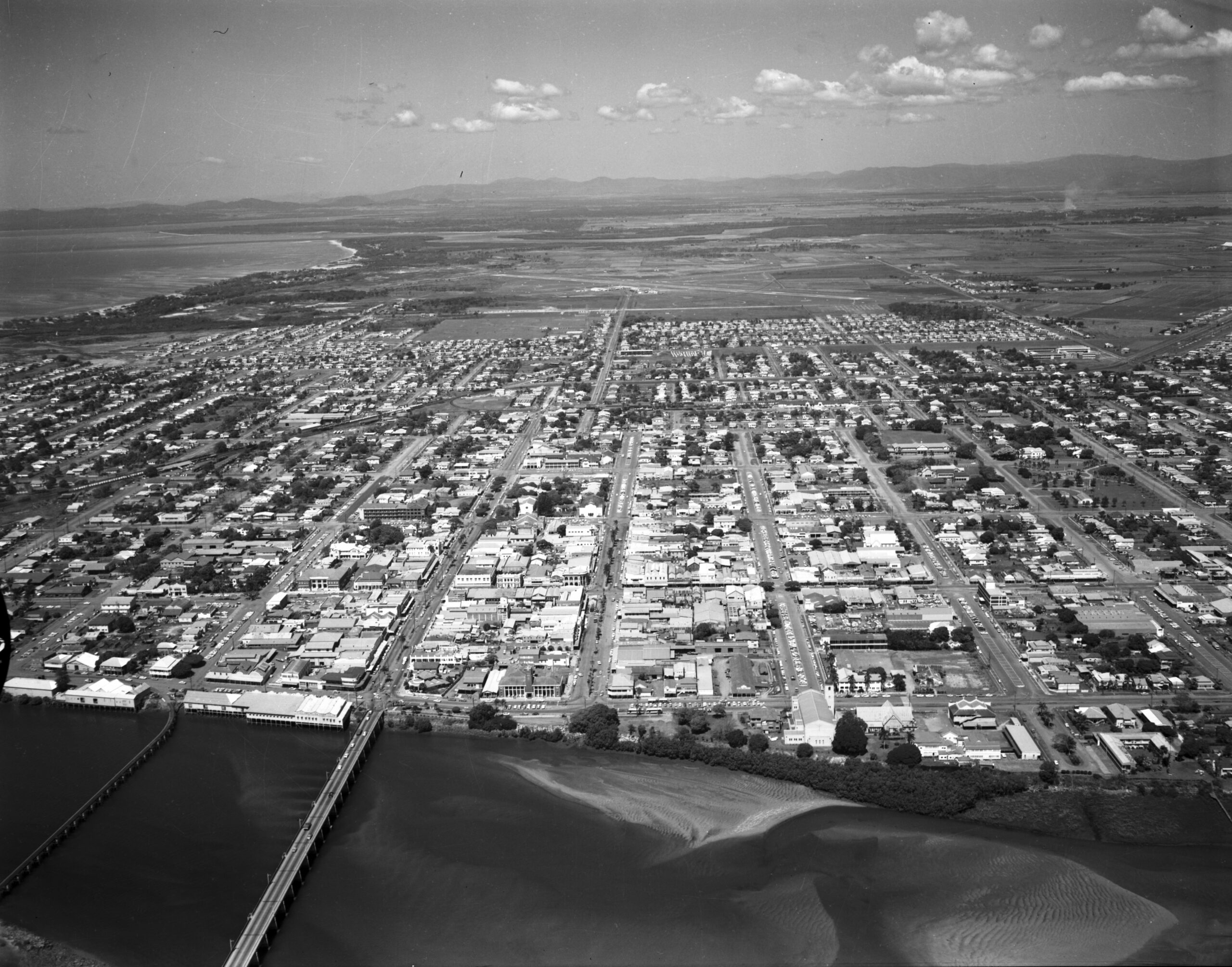
2023 ASHA Conference Bursary Offer
ASHA is pleased to offer a small number of bursaries for members wishing to attend the 2023 conference in Mackay, Queensland. A budget of up to $1000 is available to assist in travel related expenses and will be divided amongst winning applicants.
The bursary is provided to encourage attendance from any member who would benefit from financial assistance. Students and unwaged members are particularly encouraged. Applications closed on Monday 4 September 2023.
2023 ASHA Annual General Meeting
The Annual General Meeting will be held as in-person and online event at the 2023 Conference.
Date: Thursday 21 September
Time: 5:30-7pm AEST / 7:30-9pm NZST
Official Venue: Mackay Entertainment & Convention Centre and online*
Agenda: The 2023 AGM Agenda can be viewed here.
Financial Report: The 2022-23 Financial Report can be viewed here.
Annual Report: The 2022-23 Annual Report be accessed here.
Draft 2022 AGM Minutes: Can be accessed here.
You will need to be a current ASHA Member to access these documents.
*A Zoom meeting link will be sent to all ASHA members closer to the date.
ASHA Committee Nominations
ASHA Committee Nominations for 2023-24 have closed. However, we always welcome new Committee members and if you would like to join the Committee, you can download a nomination form containing information about positions and roles here.
Membership
You will need to be a current financial member to nominate for a Committee position or vote at the AGM. You can renew your membership here.
